#dakota joe
Text
Dropping some art!





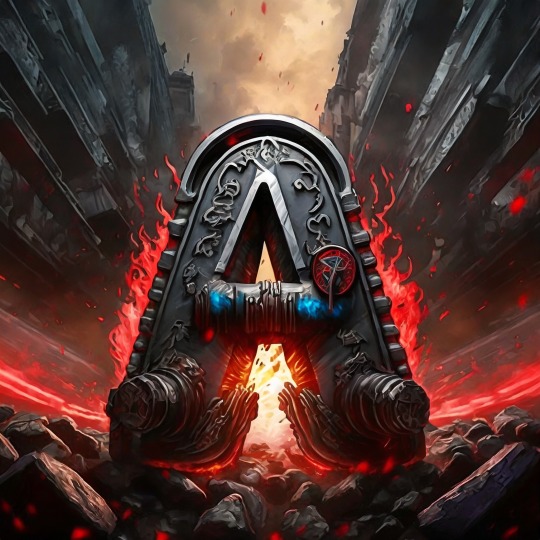
#magnet#art#digital art#chad randall#starseed nation#starseed metaphysical shop publishing#dakota joe#chad#cool#awesome#weird#different
0 notes
Text
being a fall out boy fan is so unserious okay yeah whatever they had their own episode of teen titans go and had a song on big hero six i guess. and their lead singer worked on the soundtrack of a disney junior spiderman spinoff as well as having various cameos in it but not only that he sang a song for the lego batman movie yeah whatever who cares right
#i think i’m funny#sorry#anyways#fall out boy#fob#patrick stump#pete wentz#joe trohman#andy hurley#dakota be normal challenge
627 notes
·
View notes
Text



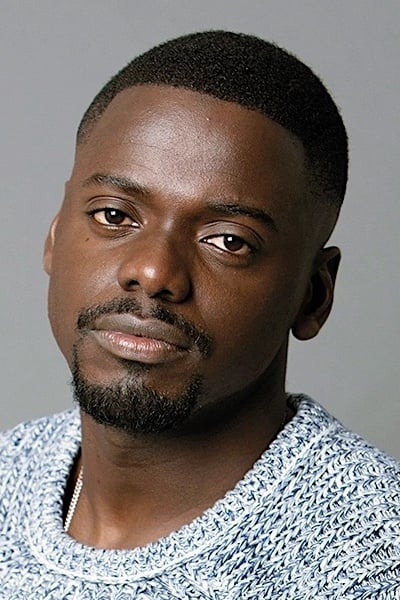

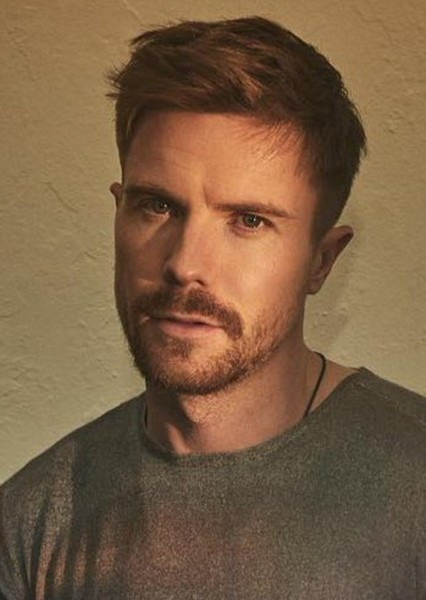
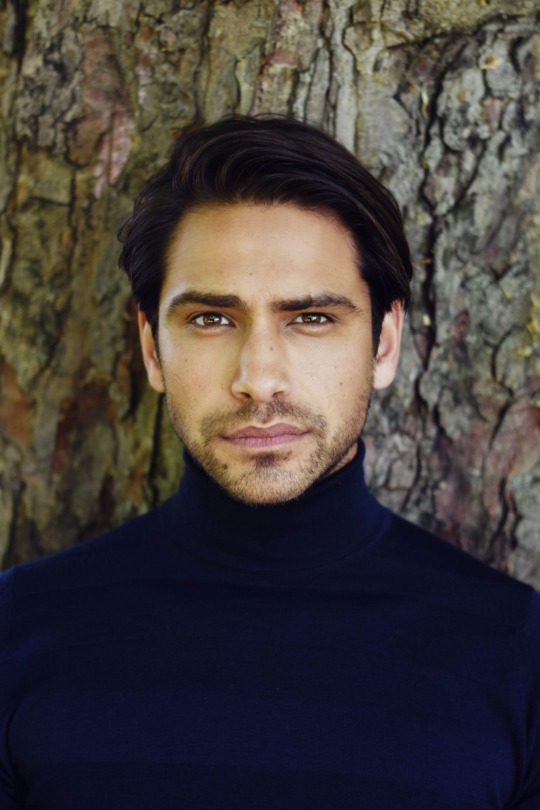



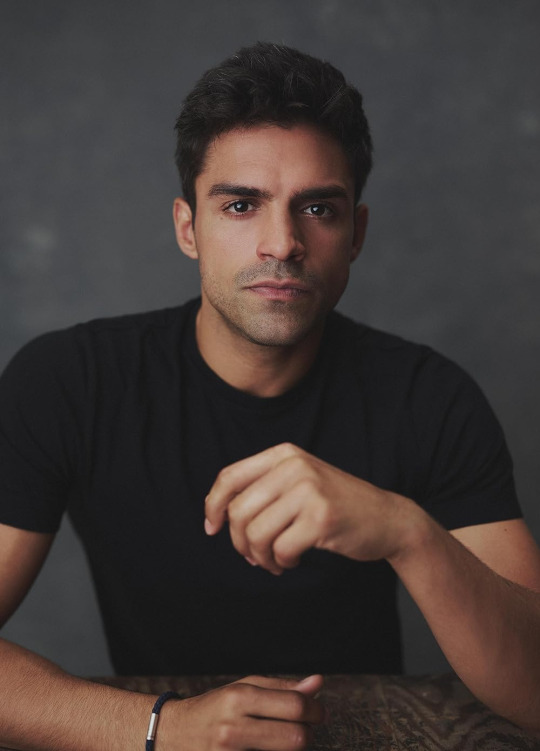



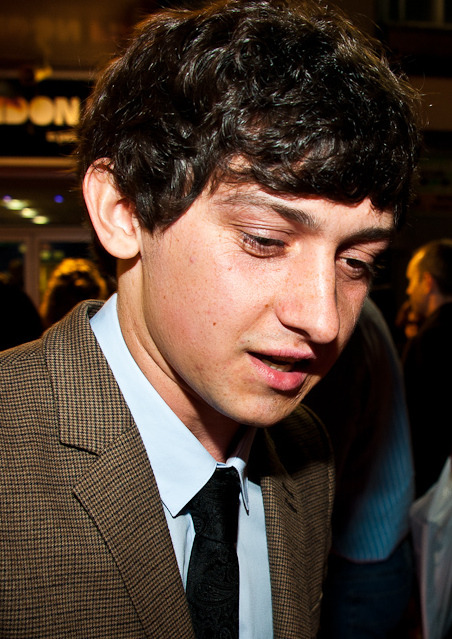

The talent pool Skins had is actually crazy
#not a dream#skins#skins uk#nicholas hoult#dev patel#kaya scodelario#daniel kaluuya#hannah murray#joe dempsie#luke pasqualino#kat prescott#kathryn prescott#jack o'connell#jessica sula#sean teale#sebastian de souza#dakota blue richards#olly alexander#years & years#craig roberts#lucien laviscount
560 notes
·
View notes
Text
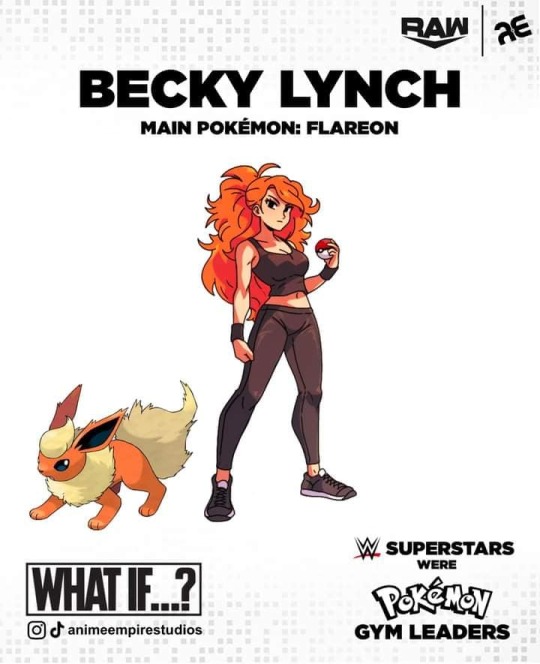

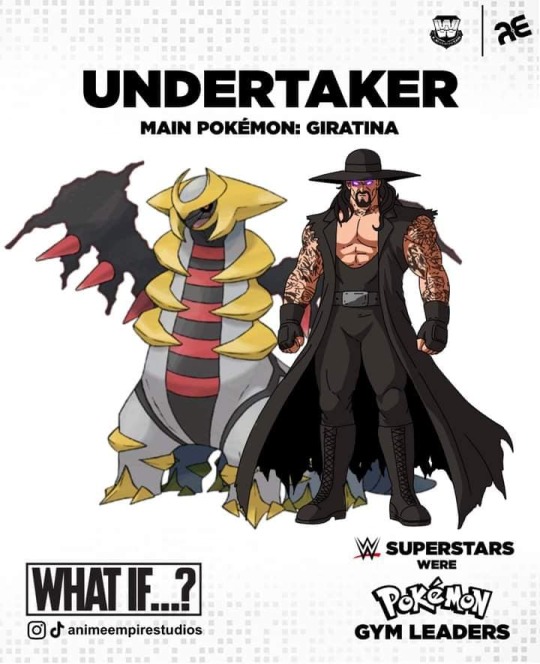
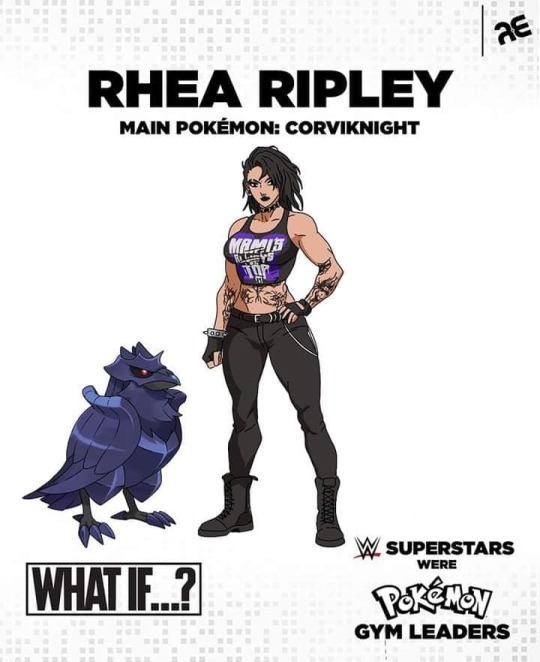
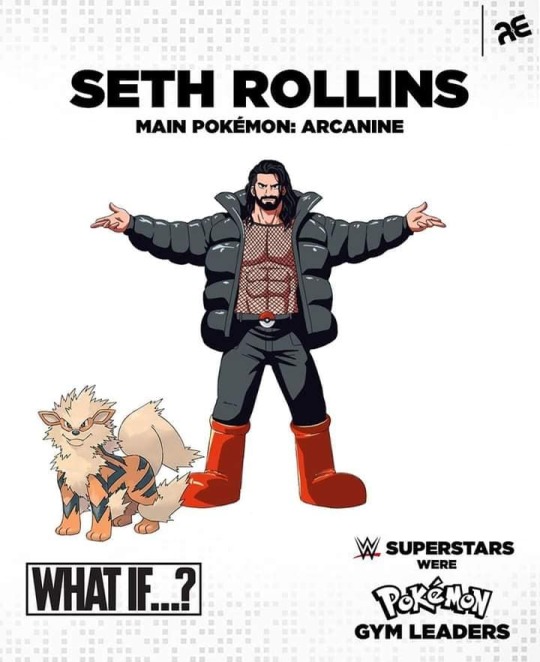
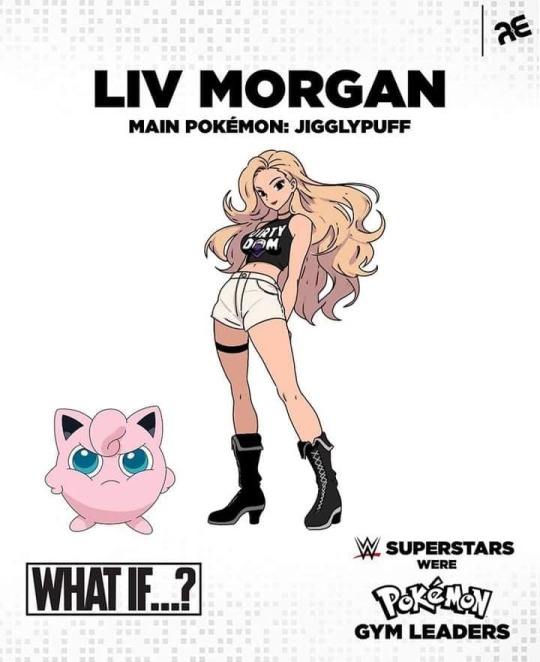


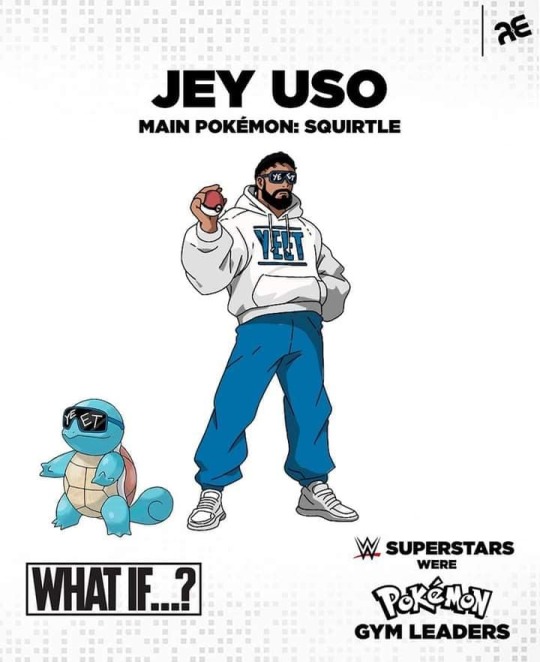
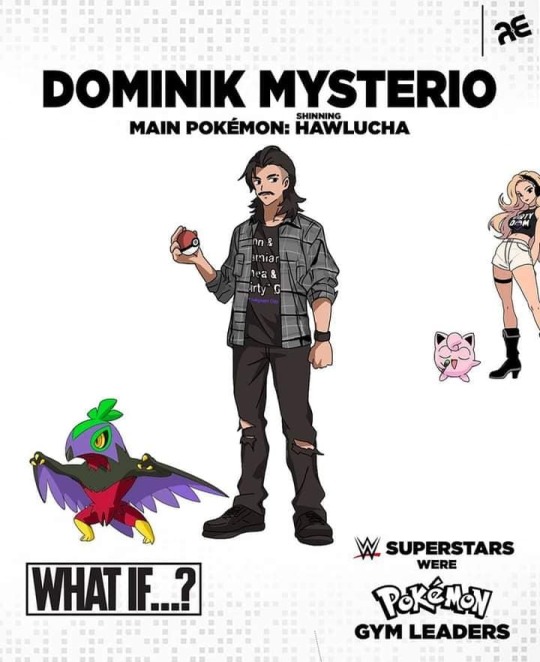
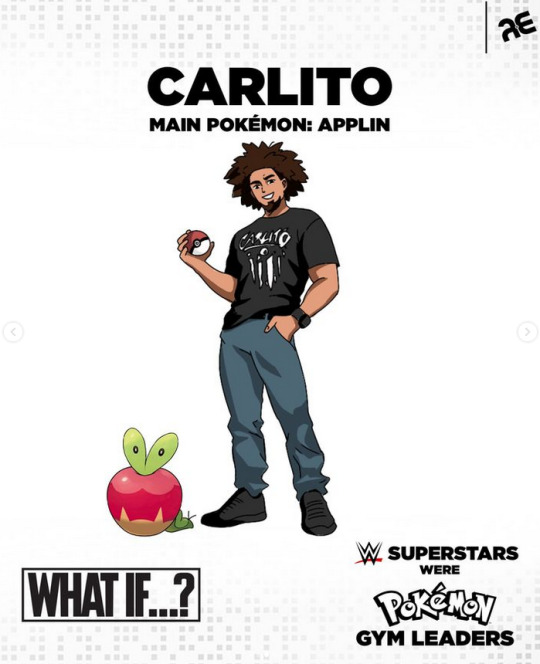
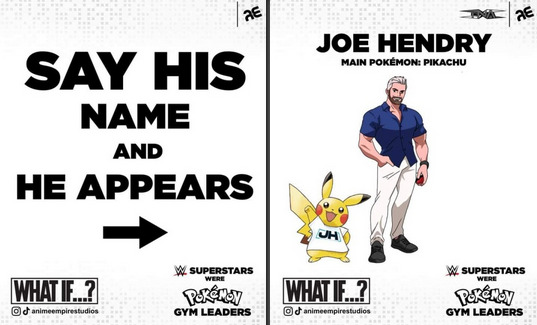
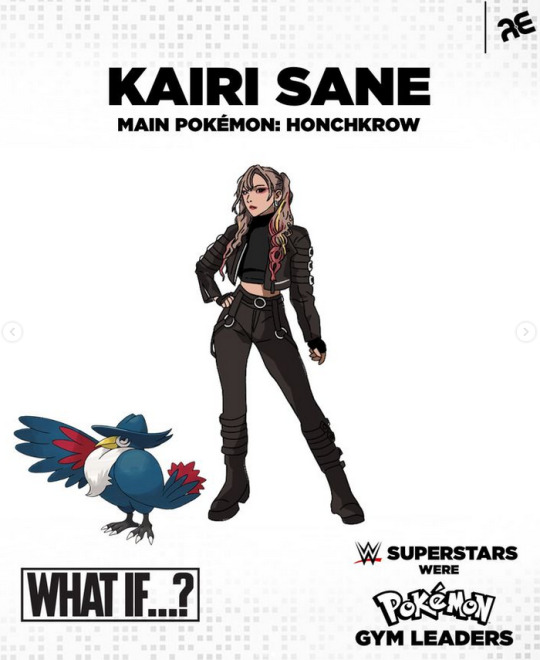
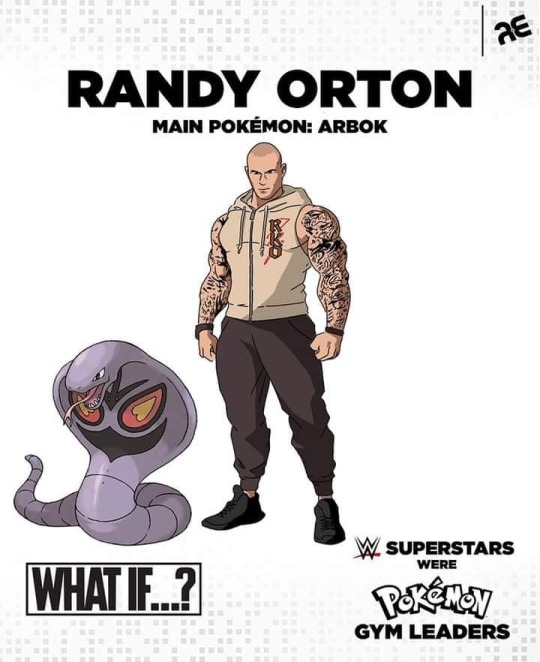
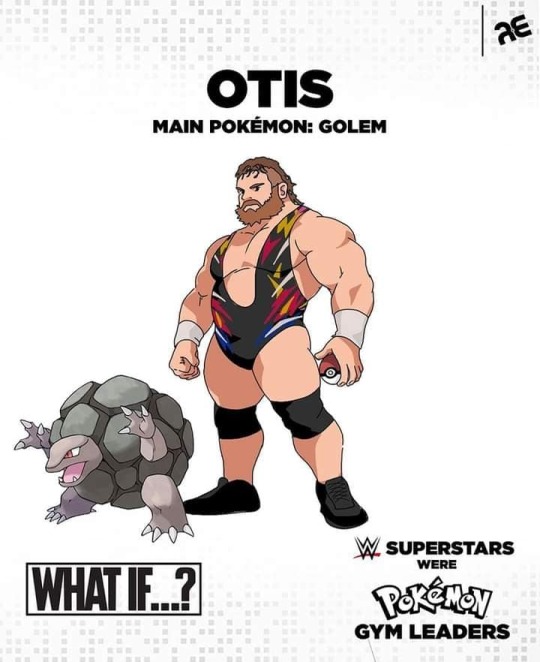
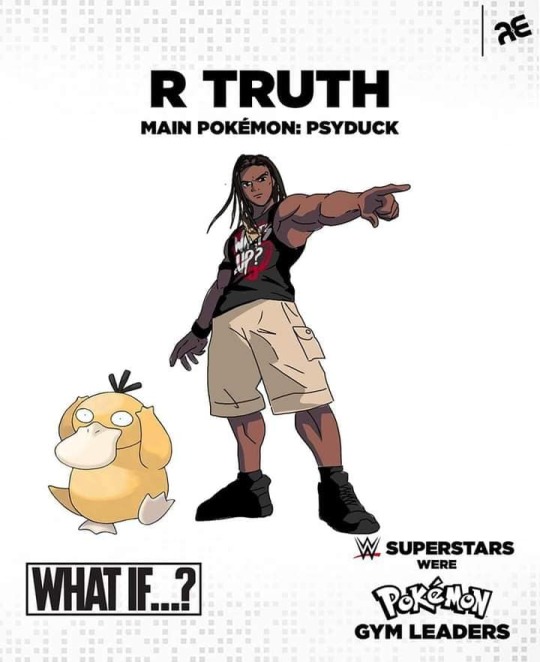

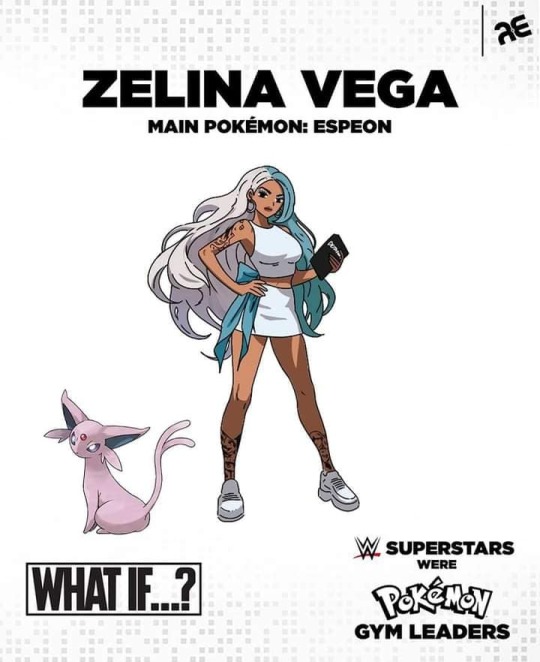
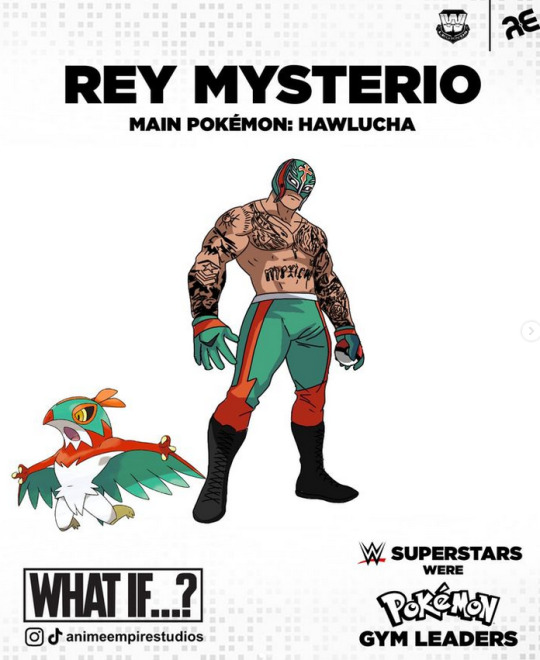
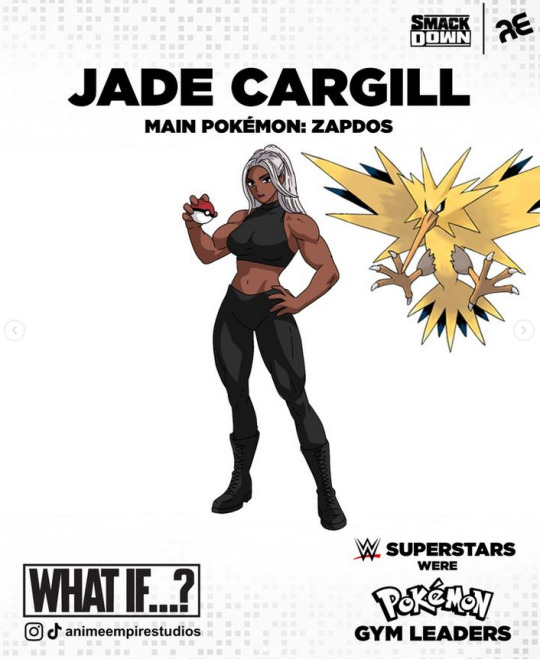
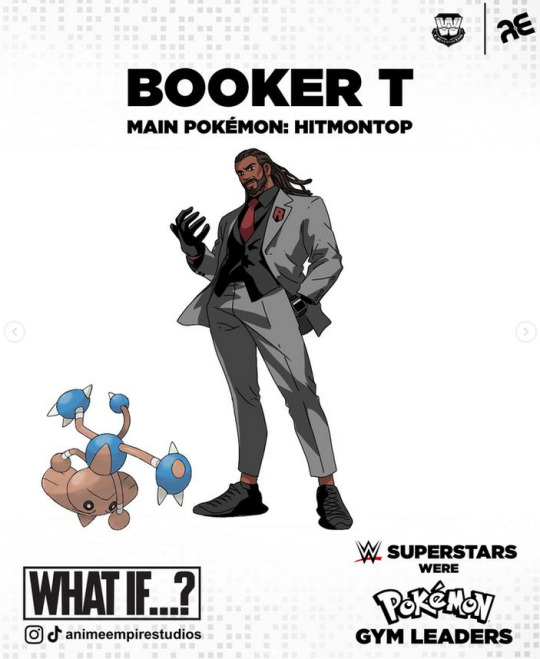

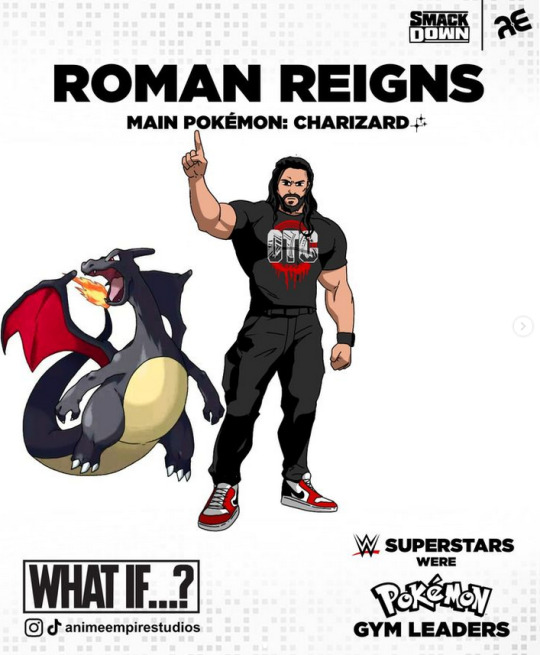
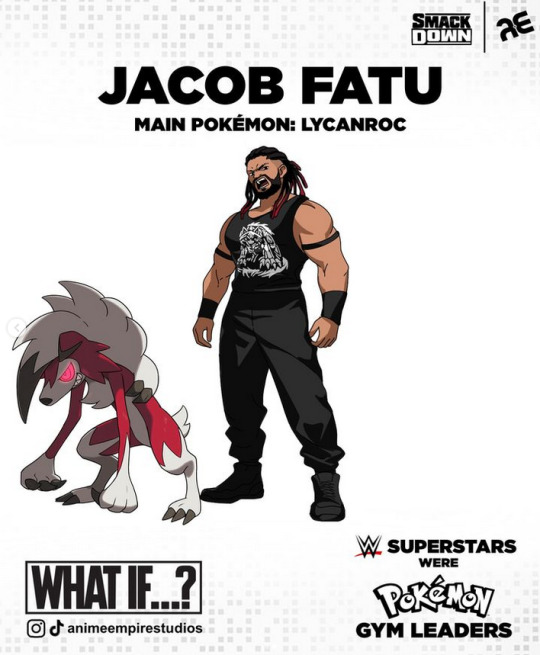

If WWE Superstars were Pokémon Gym Leaders by animeempirestudios
Link 1
Link 2
Link 3
#WWE#Pokemon#Becky Lynch#Rhea Ripley#The Undertaker#Seth Rollins#Liv Morgan#Dominik Mysterio#Cody Rhodes#Dakota Kai#Jey Uso#Carlito#Joe Hendry#Kairi Sane#Randy Orton#Otis#R Truth#Trick Williams#Zelina Vega#Rey Mysterio#Jade Cargill#Booker T#Bray Wyatt#The Fiend
241 notes
·
View notes
Text
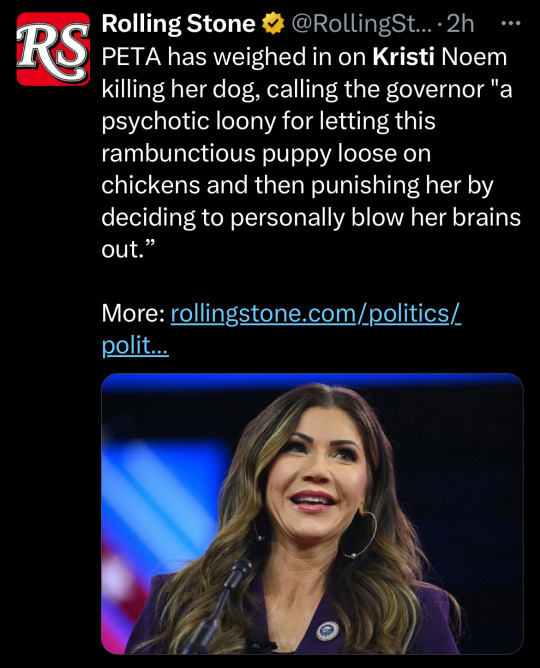
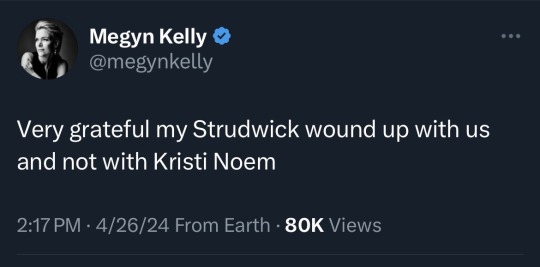
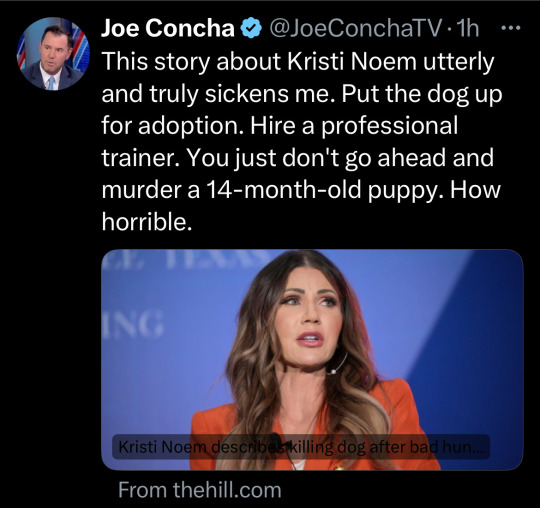


#kristi noem#gov south dakota#south dakota#maga#fuck maga#animal abuse#gop#republicans#dont vote for trump#donald trump#vp wannabe#awful human#animals#dogs#fox news#megyn kelly#joe concha#laura loomer#joe biden#president biden#they make me sick#animal rights#peta
180 notes
·
View notes
Text






























WWE RAW (AUGUST 5, 2024)
#wrestling#wwe#wwe raw#ludwig kaiser#randy orton#damian priest#finn balor#liv morgan#rhea ripley#the judgement day#the terror twins#terror twins#bronson reed#seth rollins#drew mcintyre#cm punk#iyo sky#kairi sane#dakota kai#damage ctrl#shayna baszler#lyra valkyria#wyatt sicks#dexter lumis#joe gacy#nikki cross#long post
40 notes
·
View notes
Text



Dakota Rose (Popteen Magazine 2014)
┊ ┊ ┊ ┊ ┊ ┊
┊ ┊ ┊ ┊ ˚★⋆。˚ ⋆
┊ ┊ ┊ ⋆
┊ ┊ ★⋆
┊ ◦
★⋆ ┊ . ˚
˚★
#syrup#KO KOkim#evelyn#Swankiss#Liz Lisa#6% Doki Doki#Joe & Ruban#Dakota Rose#dolly kei#living doll#dollcore#doll fashion#dolette#popteen#cute#jfashion#grayme#fairy kei#cutecore
36 notes
·
View notes
Text
Kristi Noem's Dog Killing Mocked at White House Correspondents' Dinner
New Post has been published on https://petnews2day.com/news/pet-news/dog-news/kristi-noems-dog-killing-mocked-at-white-house-correspondents-dinner/?utm_source=TR&utm_medium=Tumblr+%230&utm_campaign=social
Kristi Noem's Dog Killing Mocked at White House Correspondents' Dinner
Comedian Matt Friend made a joke about South Dakota Gov. Kristi Noem’s admission that she killed her own dog. “I am killing this dinner harder than Kristi Noem kills the puppies,” Friend said, while imitating former President Donald Trump. Noem, a potential running mate for Trump, drew backlash this week after The Guardian reported that […]
See full article at https://petnews2day.com/news/pet-news/dog-news/kristi-noems-dog-killing-mocked-at-white-house-correspondents-dinner/?utm_source=TR&utm_medium=Tumblr+%230&utm_campaign=social
#DogNews #Dogs, #DonaldTrump, #JoeBiden, #KristiNoem, #Republicans, #SouthDakota, #WhiteHouseCorrespondentsDinner
#dogs#Donald Trump#Joe Biden#Kristi Noem#republicans#South Dakota#White House Correspondents' Dinner#Dog News
13 notes
·
View notes
Text
X-Files IWTB: First Time React (Part III)
Wherein my anger overcomes my will to finish.
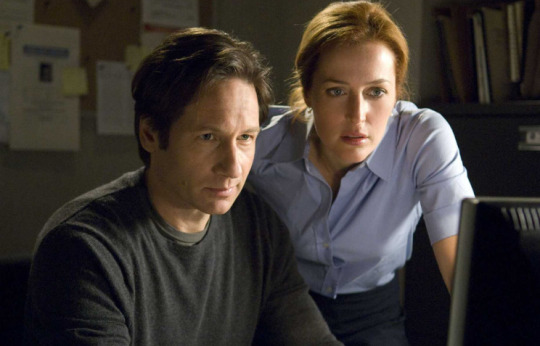
Heeeeeeeeeeeeeeeeeeeere we go, Part III.
*Disclaimers*: I separate art from artist, acting was great, DD and GA did their best, my reaction is exaggerated for comedic purposes, etc. etc. etc.
Whooooooooooooooooooooooooooooooooooooooooooooooooooooooooooooooooooooooooo...................
Scratchy beard is over, and there is only pain, I presume, from here on out.
I’m going to try to keep this short and sweet because:
I don’t care about the plot much.
The characters are going to break apart whatever investment I have left in it.
…There’s nothing really compelling about anyone else but Mulder and Scully. Maaaaaaaaaaaybe? I’ll like Pedo Joe’s stand-off with Scully? Doubt it.
I am going to finish this movie with LIGHTNING SPEED because I caaaaaaaaaaaaaaaaaan’t stand it, despite DD’s comedic timing and Mulderness (that is butchered by the script) and GA’s balanced grace and angst and Scullyness (that is butchered by the script); and honestly don’t think marinating in the details would be worth my time, despite the glorious opportunity to snark.
I was trying to get back to where I left off and skipped to this image of Pedo Joe:

I believe it represents my viewing experience quite accurately.
Back to it:
This scene’s not so bad: Mulder gets up to shave, working on Scully’s “scratchy beard” hint as an opportunity to free his unconscious mind by doing repetitive movements, eg. moving a razor up and down instead of quoting along to a tv. AND THAT’S A NICE TOUCH: it’s that domestic softening, that hinting at Scully’s lectures (in a good way) about tv being bad for his sleep patterns and Mulder learning to do other odd things with his hands instead.
And Scully trailing him in and beginning to change her tune when Mulder mentions the tears of blood, etc. It’s nice, it’s them. So far, so very good.
Nooooooooooooooow she’s gonna get uber jealous of Dakota Whitney

and reinterpret everything Mulder does through this stupid lens: shaving while thinking about the crime scene, letting (which he didn’t) Dakota take the fluff off his face, hanging around the FBI instead of following her back to a cozy, domestic life (which he CAN’T do because he’s tied to the case for good or ill no matter what-- they know where he lives, after all.)
Hoooooooooooooooooooooooow does Scully conclude this is about him finding his sister, hooooooooooooooow. She wasn’t even there for the longing gazes he exchanged with Drummond’s? photo, the implication being his behavior is a long-standing pattern of behavior. But as established in the last two parts, it ISSSSSSSSSSSSSSSSSSSSSSSN’T.
“It hasn’t stopped you from looking for her. …You cannot save her, not now and not ever.” THIS HAS NOTHING TO DO WITH THIS CASE, THIS HAS NOTHING TO DO WITH THIS SITUATION, THIS HAS NOTHING TO DO WITH HIS PAST, THIS HAS NOTHING TO DO WITH HIS FREEDOM THAT IS BOUGHT AND SOLD ON THE FBI’S WHIM, THIS IS NOT ABOUT YOUR PAIN AND TORMENT, THIS IS NOT. ABOUT. YOU. SCULLY.
“We need those men back!” Mulder yells-- and he is the only person doing the right thing now. And the movie will punish him and his motives for it.
The writers have unironically turned into early seasons' Syndicate men by depicting Mulder as an egomaniacal, unbalanced man on a mission… and Scully is giving him less grace and understanding than her own self how many years ago on their first case in Oregon.
“What are you doing?” asks Scully.
“Trying to ignore you--” THAT IS NOT MULDER. THAT IS STUPIDLY IMMATURE. WHAT.
PEDO JOE JUST STOOD THERE FOR HOURS WHILE THE FBI DUG AROUND; AND ONLY STARTED FOLLOWING HIS HUNCHES WHEN MULDER ASKED HIM A FEW QUESTIONS??????????????????????????????????????????????????????????????????????????????????????????????????????????????????????????????????????
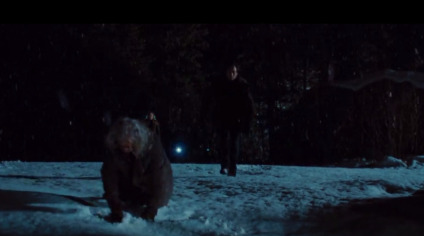
I don’t know why, but that insignificant detail broke me.
I’m done. Skipping to parts now.
I skipped to the breakup.
“You asked for me to get involved, Scully, now I’m asking you to stay involved.”
YEAH, LIKE YOU PROMISED TO DO BECAUSE THAT WAS HIS ONE CONDITION.
“You helped them already, you broke the case for them, why don’t you let the FBI deal with it?” …Scully, the case isn’t broken. I understand you need support because of Christian and Mulder is completely dropping the ball there; but Scully, your medicine has done what it can (or would if you didn't give up on him as well for some reason) for the boy but there are REAL people whose lives are in danger, right now, and need to be rescued.
Scully gave up because Mulder wouldn’t let this go. This COULD, COULD have worked if Mulder was pushing her to join him back at the FBI; but that’s not the case here. What’s going on here is the fact that he’s on a high, he’s saving lives, he needs HER help that she promised to give (and hasn’t); and yes, this is hard, yes, this is inconvenient, yes, she feels like Christian is getting second-best; but this is her partner’s freedom, his LIFE (and hers) he is winning back. Just a bit longer and they can breathe freely. THEN they can fight about the FBI, to return or not to return, etc. THEN this fight can and could happen.
Would Scully still leave then? Apparently she did in the Revival; but here and My Struggle I posits it would have been a permanent rift and not a temporary one that was later written in (or hinted at) to blur the lines of the bad writing choices.
Here’s why this scene doesn’t work: Scully’s writing is already so thoroughly broken (written about extensively here and here) that her declaration makes no sense:

she was off-put by pedo compound but on fire while she and Mulder bounced theories after scratchy beard but off-put firmly after Whitney touched his face but then was-- you get the point. On top of that, Mulder-- for as narrow-minded as his focus tends to be-- ALWAYS checks in with Scully’s emotional well-being; and it’s usually her that sets her feelings aside so they can plow forward. If Scully has an objection, Mulder will pause or come at it from another angle that will appeal to her. Scully here cannot be appealed to or reasoned with; and Mulder is only “inconsiderate” in his drive because he’s, again, WINNING HIS FREEDOM. The very thing that's kept them from meeting their son again, etc.
Mulder is STILL giving her an out: he understands she’s a doctor now, that that isn’t her life anymore (BECAUSE IT’S NOT HIS), and just needs her help ON THIS CASE.
Scully: “I cannot look into the darkness--” PFFFFFFFFFFFFFFFFFT, get that writing out of my ears, blegh, blegh, UCKCKCKCKKCC, it’s chocking me, eeeeeeeeeeeeeeeeeeeeeeeeeeeehhhhhhhhhhhhhhhhhhhhhhhhhhhhhhhhhhhhhhhhhh.
“The darkness” is so wattpad, my word.
“I’m fine with it, Scully, I’m okay, I’m good.” …WHAT sort of response is that? It makes it seem like Mulder’s addicted to this-- and in a way, he can be. But the PROBLEM is he’s now addicted at the expense of Scully???? Even though Scully has ALWAYS been addicted to it, TOO???? But she’s not now though she still is at times in the script(???) because… beeeeeeeeeeeecaaaaaaaaaaaaaaaaaaaaaaaaause????????????????????????????
Mulder: “Where else would you want me to look to find these women alive?”
Scully: “I’m asking you to look at yourself.”

Exactly, Mulder. (Unironically the Windows crashing noise… meme. Whatever.) …Scully, you’re setting yourself up for the “unreasonable little woman at home” jokes and you’re SCULLY and why are you like this.
Mulder: “Why? I don’t think I’m the one that’s changed.”
Based. Like… you pulled a “based” out of me, wow.
Scully doesn’t want the darkness (UUUUUUUUUUUUUUUCK) in her home anymore. Fair. But he’s not bringing it into the home. Also, insert "there are people DYING, Kim" meme.
Another thing: “This is who I am. This is who I’ve always been” true-ish, Mulder, but not true enough. It implies you cut out her emotional needs-- which you haven’t since SEASON. TWO.-- for your quest… but also, she accepted that about you IN ALL THINGS, WHICH WAS IN SEASON SEVEN. YET. HERE WE ARE.
GILLIAN REALLY DID HER BEST WITH “PUT IT IN A BOOK” JUST LIKE SHE DID HER BEST WITH SCULLY’S REJECTION OF JACKSON IN THE MY STRUGGLE IV FINALE BUT IT’S STILL JUST. SO. AWFUL.
Wait, okay, so, this broke them up and Mulder learned how much he and Scully needed x/y/z for their relationship (despite how STUPID this is); and she explained how she’s at her limit and she doesn’t know what else to do, etc……………. And history repeated itself in a couple years because Mulder got depressed and gave up on them and just… didn’t… do… things.
Sidenote: I HAVE THOUGHTS about the Revival breakup that I’ll talk about sometime (that CC blamed Mulder’s depression on Colonization’s failure when, in reality, he went on the run because of other men who feared Colonization and if it DIDN’T come to pass Mulder would have been TRULY free and he and Scully could embrace life and meet William and etc. etc. etc. but instead Mulder just flogged himself becaaaaaaaaaaaaaause reasons despite winning and, yes, William was given up HOWEVER they'd now have the freedom and opportunity to meet him, etc. And yet. And yet. ANYWAY.)
SCULLY, YOU BROKE MULDER’S HEART-- THAT HURT ME. WOW.
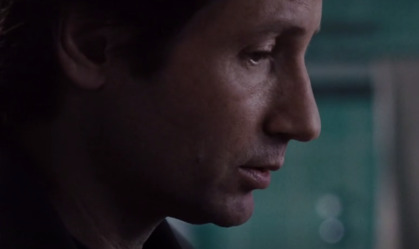
HE CAN’T CHANGE WHO HE IS AND THIS WASN’T EVEN ABOUT WHO HE WAS BUT YOU BLAMED HIS WANTING TO HELP THOSE WOMEN ON A NONEXISTENT SAMANTHA-COMPLEX, PAINTED HIM AS AN OBSESSIVE NUT WHO THREW YOUR RELATIONSHIP ASIDE FOR THE WORK, AND MOVED OUT WHEN HE NEEDED YOU MOST WHEN YOU PROMISED, FROM THE START, TO BE THERE FOR HIM THROUGHOUT THIS CASE. WOW. WOW. WOW.
SKIIIIIIIIIIIIIIIIIIIIIIIIIIIIIIIIIIIIIIIIIIIIIIIIIIIIIIIIIIIIIIIIIIIIIIIIIIIIIIIIIIIIIIIIIIIIIIIIIIIPPPPPPPPPPPPPPPPPPPPPPPPPPPPPPPPPPPPPPPPPPPPPPPPPPPPPPPPPPPPPPPPPPPPPPPPPPPPPPP--
I will say: IWTB Mulder hair supremacy. My favorite of all his looks. Hands. DOWN.

Too late for this joke-- this movie’s Scully didn’t earn it.
“HEY” Scully yells; and waits for the villain to turn around before whacking him in the head with a VERY big and probably VERY heavy axe instead of, I don’t know, shooting him. “But she’s a doctor now” I say to myself-- erecting a straw man just so I can wear off my aggressively angry energy by beating it do death. I didn’t know that doctors, I counter to myself, who were former SPECIAL AGENTS ANNOUNCE WHEN THEY’RE GOING TO HIT THE BAD GUY WHILE BEING 5’2” AND HEAVING AN AXE OVER THEIR HEAD AT SAID BAD GUY.
Honestly me at this point:
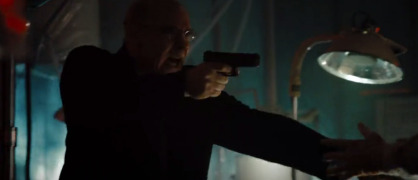
Scully walks in and sees a woman in the midst of being chopped into sell-able body parts;

and it just… hit home to me that she wanted Mulder to give up on this case, this lady, and the other women, DESPITE being on fire for other cases relating to women in the past, ala Excelsis Dei, Unruhe, Small Potatoes, etc. etc. GOOD GOING, CHUMP.
Also, Mulder’s still tranked outside in the freezing cold, despite there being a team with Scully and Skinner (I think?) and… why didn’t she yell for the team to come help Mulder? Or someone? Or, I dunno, do that NOW rather than just send Skinner out to cuddle him??
Though that’s a nice moment, to be honest.
WAIT, IT’S LITERALLY JUST THE TWO OF THEM-- y’know what? Forget. It. Why isn’t there backup? No, NO, I am not rewinding to find out.
Skinman Cuddles, ™. WHOOOOOOOOOOOOOOOOOO. I'll take it.

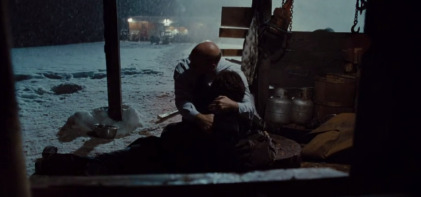
I was showing my sis a pic of the house and she had the audacity to say “Oh, how very unremarkable” to my face before making her version of a smug face.

I’m too amused to be annoyed; but it’s that thin sibling line, y’know?
I fully support Mulder here: I’d be this annoyed, too. …I’m so tired.
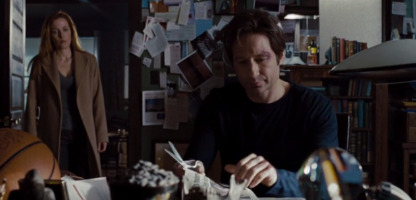
His sarcastic eyebrow twitch made me bust out laughing.
Is he still going to take the majority of the blame that should not be his at all. If so, I’m. gonna. riooooooooooooooooooooooooooot.
Mulder pauses and asks Scully if she’s seen the story: that the FBI blamed Pedo Joe for the case-- and even though the guy was a pedo, this wasn’t on him. And you know what that means?????
THE VERY GROUP THAT PROMISED TO FREE MULDER THEN BACKSTABBED PEDO JOE WHO WAS WORKING IN THEIR BEST INTEREST WHICH MEANS I WAS 100% RIGHT IN MY ASSESSMENT THAT THEY CAN’T BE TRUSTED WHICH MEANS SCULLY WAS 100% WRONG IN TRYING TO SHOVE MULDER OFF THE CASE BECAUSE THEY WOULD HAVE WHOOPED HIM, TOO, IF HE DIDN’T HELP.
….dEEP breaTHS.
AND SCULLY IMMEDIATELY DENIES THE TRUTH AND HIDES BEHIND “WELL, HE’S DEAD NOW.”
WELL, I GUESS SHE WOULD HAVE SAID THE SAME IF MULDER HAD LEFT THE CASE ON HER SAY-SO AND BEEN THROWN INTO PRISON. GUESS HE’S DEAD NOW.
Mulder wanted to at least clear that part of Pedo Joe’s name because it is an injustice… buuuuuuuuuuuuuuut Scully doesn’t care about justice now, even though she actively saved the lives of eviler men to later put on trial. Y’know, because they were facing JUSTICE.
Oh, the pain and the torment of Scully not caring because he was a pedo and then denying that she believed him ‘cuz he’s dead now and she doesn’t have to face the fact she was a SNIVELLING COWARD who had to be motivated to do what’s right BY A PEDO.
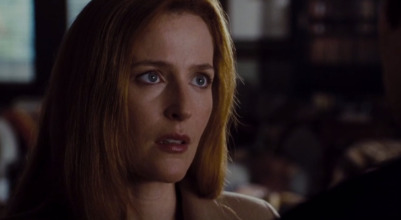
Isn’t this just a beautiful movie.
FINE. SHE ADMITTED SHE BELIEVED. WE’LL GIVE HER THAT.
And Mulder is willing to let it all go if she tells him what she believed-- y’know, like they used to do back in the day-- but the movie wants you to think this is new character growth for him when it’s very obviously not for even the most casual of X-Files watchers.
She has the gall to deny him his request… after she put him through SO MUCH in this movie by… I’m not reiterating, I’m tired, again.
The movie is trying to say that Scully directly contributes to Mulder’s cave troll lifestyle by not communicating with him; which would be cool if the Revival didn’t loom over the horizon, or, more precisely, IF THIS MOVIE DIDN’T BUTCHER THIS INTERESTING IDEA. AAAAAAAAAAAAAAAAANYWAY.
Wait. So, Scully gave up on Mulder to do her job... but was ALSO giving up on her job ala Christian becaussssssssssssssssssssse until the pedo priest told her to keep going and it saved Mulder’s life and Christian’s……………………………………………………..
Please end. PLEASE, please end.
1:38:00 of 1:48:00 left.
Mulder: “Father Joe’s prayers were answered, after all.”
I’M DONE, I’M OUT, HOW DARE YOU MAKE ME LISTEN TO THE AGNOSTIC SAY THAT HACKED STATEMENT. LET ME RUN OUT INTO THE NONEXISTENT SNOW AND LET ME HURL.
wOW. Pedo Joe has been made into a saint I guess because he didn’t give up. And I guess that’s supposed to be comforting for Scully because she didn’t give up, either, even though she did.
WAIT, MULDER DIDN’T KNOW SHE GAVE UP. HE DIDN’T. KNOW. SHE GAVE. UP.

Okay, see, Mulder was wildly out of character this movie, too; but the above realization is… not even Pilot Mulder, because Scully didn’t have to say a word in the Pilot for him to read her moods. He’s always been in-tune with her (despite profiling, yadda yadda yadda); so, to suddenly put on blinders to hide away that "ability" just so the writers can extend that miscommunication over the ONE aspect they “get” about each other is laaaaaaaaaaaaaaaaazy, and baaaaaaaaaaaaaaaaaaaad, and INFURIATING.
I just realized this movie is completely my vibe and that’s why I’m so passionate about this.
Mulder: “If Father Joe were the Devil, why would he say the opposite of what the Devil might say?”
I. Died. on the spot.
Look, you don’t have to have a religious background to know that this is the most brain-dead, stupid, inane take ever: cult leaders and other villainous exploiters have used this to their advantage, masking their motives behind religious speak.
(Sis--I’m fake crying from frustration and she’s nearby-- says: “Because he’s the Devil.”)
Why does Scully get weepy after Mulder says “Don’t give up” and STILL. INSIST. ON LEAVING HIM??? EITHER PERMANENTLY OR TO DO THE SURGERY OR BOTH????? UNTIL HE GIVES HER A HUG, I GUESS??
i. loathe. this. movie.
Now Mulder’s sayin’ “hey, ‘bout that kid? If you don’t feel like doin’ the surgery doodad, then we can bounce to vacay and let him deal, yo yo.” Again, Scully wasn’t the only character butchered in this movie. Was this nice of him to say? Yes. Is this a Mulderism? NO. A Mulderism would be to encourage her to do the right thing and promise a vacay AFTER.
1:40:25. Eight minutes left.
Okay, you had your pretty romcom moment, can this END NOW????
I can live with the chest pat. It’s fine. But, again, it’s sort of… a moment from a better movie.
...Credits? CREDITS??? Where's the vacay??????????
(There was a perfectly comedic moment when the music was just kicking up and then POW Chris's face was just THERE while I was trying to figure out what in the world was going on.)
WHAT IS THIS BARBIE DIARIES MUSIC AND WHERE DID IT COME FROM AND WHY IS IT OVER MULDER AND SCULLY ON THEIR COOL ISLAND VACAY??????????????????????????????????????????

IT DOESN’T FIT THE VIBES, FAM.
mOM, PICK ME up, I’M SCARED.
I’m so, so glad I skipped around.
I. despise. this movie.
I knew it was bad; but I thought it would be inane, boring bad.
No, no, my fellow philes: it’s cold-sores-and-orange-juice bad.
(Now, to figure out how to write a cool meta from this mess. I have a few ideas, no worries there~.)
I’M OUT.
Thanks for reading~
Enjoy!
#txf#xf meta#X-Files IWTB: First Time React#meta#mine#IWTB#First Time React#Part III#reacting out of blind frustration#first watch through#Mulder#Scully#xfiles#x-files#the x files#Skinner#Dakota Whitney#Father Joe
20 notes
·
View notes
Text
'It’s one of those odd April days in Los Angeles, the type that locals know well: Hours after noon, the sun still seems ambivalent about whether it wants to make itself known. An outsider wouldn’t think it possible for the gleaming capital of show business to feel so grayed out. But if you grew up on an island where colorless skies are the norm, it might feel familiar.
“It’s like, Will I? Won’t I?” the Irish actor Andrew Scott quips as he settles into his chair on the rooftop of the Edition Hotel in West Hollywood. He’s been in town promoting his Netflix series “Ripley,” which launched a few weeks ago, and the foreboding weather seems apt. On that limited series, the Italian vistas seem as unsettled as its antihero’s soul. The show’s vibe is “almost like L.A., what we’re looking at here now,” Scott says, as I begin to regret not bringing a jacket to our alfresco lunch. “It’s cloudy. I come from a place where the sky is normally like this.”
Scott’s “Ripley,” an adaptation of Patricia Highsmith’s novel about a grifter whose 1950s Euro-trip comes with a body count, is morally cloudy, too, and glamorously gloomy besides. Unlike the 1999 film “The Talented Mr. Ripley,” which placed an uptight Tom Ripley (then played by peak-heartthrob-era Matt Damon) amid the rustic charm of Italy and drew its charge from the contrast, this year’s version is a blunter object. Speedo-clad Damon romped through the Italy of your dreams; the baggily attired Scott staggers through a nightmare.
Written and directed by Steven Zaillian and likely to place Scott in contention for a limited-series lead-acting Emmy, it’s mesmerizing but cool to the touch, using Oscar winner Robert Elswit’s stark black-and-white cinematography to depict a landscape as forbidding as its central character. That may account for why the series got off to a slow start on Netflix’s weekly viewership charts. But “Ripley” has also attracted the kind of positive notices that suggest a potential long tail, especially as Emmy season looms.
The series was a crucial test for Scott, who, at 47, has proven himself a shape-shifter. The out gay actor, who in 2019 stole scenes as the “Hot Priest” on the second season of “Fleabag,” and who had an awards-season run for his lovelorn role in last year’s “All of Us Strangers,” knows how to win hearts. Even playing the villainous Moriarty opposite Benedict Cumberbatch’s Holmes on the 2010s BBC “Sherlock,” Scott became known for his loopy, outsized line readings. So what would it feel like to play a tamped-down sociopath?
But Scott didn’t see Ripley that way. “I found an enormous amount to like,” he says. “There’s something about that character that, I think, a lot of people see themselves in. And I think it’s to do with being an outsider.” Tom Ripley, plainly gifted, lacks the social connections of the wealthy American expats he meets (played here by Johnny Flynn and Dakota Fanning as layabouts and occasional boors). His flashes of rage — forcing him, later, to methodically dispose of multiple corpses — exist for Scott as a sort of frustrated creative impulse. “He probably is more of an artistic sort, but he doesn’t feel he’s got the class to call himself that.”
There’s something about Ripley, in other words, that’s tortured — a trait Scott can conjure with ease. On “Fleabag,” his unnamed Catholic clergyman struggled through a crisis of faith-versus-lust that was both funny and painful. In “All of Us Strangers,” his conflicted gay writer goes on a dreamlike journey to re-encounter his late parents, forgiving both them and himself for past miscommunications while falling in love with a character played by Paul Mescal.
“Fleabag” cut against, and “All of Us Strangers” leaned into, Scott’s rare status as a gay leading man. “And not afraid to talk about it and be open about it!” marvels Andrew Haigh, his “All of Us Strangers” director. There’s little Scott isn’t open about: In a wide-ranging conversation, he volleys back his answers with the relentless self-examination — and the fleeting tearfulness — of a person who’s spent time in his feelings.
It can be hard not to conflate the characters he’s played with the sense that Scott is Hollywood’s new prince of heartache. In fact, he has a direct line to the queen of such matters. “Taylor’s new album is sensational! I texted her yesterday to say how amazing it is,” Scott says about “The Tortured Poets Department,” which came out three days before our conversation. Taylor Swift, he says, is a friend, and he beams with vicarious pride about her 31-track magnum opus: “I think she is just a force of nature, just an extraordinary human, and this album is really, really amazing.” His favorite song on it, for the record, is “The Smallest Man Who Ever Lived,” a ballad that begins with quiet heartbreak and builds toward a dramatic excoriation.
But Scott is perhaps being modest. Some believe that he is as much to credit for the title of the album as the men Swift sings about. Consider the explosion online after a 2022 Variety Actors on Actors conversation between Mescal and Joe Alwyn (who was dating Swift at the time, and is thought to have inspired a few songs on the album) in which they discussed their membership in a group chat called “Tortured Man Club.” Scott, they said, had initiated the chat.
“Let me tell you what that is!” Scott says. Just before Alwyn was to appear in the TV adaptation of novelist Sally Rooney’s “Conversations With Friends,” Scott — Alwyn’s co-star in the 2022 film “Catherine Called Birdy” — set him up with Mescal, of “Normal People,” another series based on Rooney’s work. “So they were about to play these tortured characters, and I had played a tortured character in ‘Fleabag.’ It wasn’t about our own characteristics!” The chat quickly died on the vine, he says. “I think there were three texts, like, ‘Hey, guys.’ You know those groups that you set up, and they just collapse.”
Short-lived or not, the existence of the chat had taken on a second life ever since the announcement of “The Tortured Poets Department.” And the whole incident speaks to Scott’s easy way of connecting people.
“He’s a great guardian of actors, if you’re lucky enough that he admires you or has respect for you,” Mescal says. “He’s got an overseeing quality, in terms of understanding that good art and good actors are hard to come by.”
Mescal, 28, and Alwyn, 33, feel in a sense like peers of Scott’s. “Fleabag” Season 2, which brought Scott to a new echelon of fame, was just five years ago, and in conversation, he has a Peter Pan energy: raffish, barking laugh and eyes that seem to twinkle with each new disclosure. And yet Scott makes for a notably older Tom Ripley — a character written by Highsmith to be just past college age.
“It was just a beautiful film,” Scott says of Anthony Minghella’s 1999 adaptation. “The idea of approaching that again, one of my first questions was ‘OK, who wants to do a carbon copy?’” Scott gestures at what, in the dim light of the patio, appears to be his delicately lined face: “Jesus, look at my age!”
Scott’s take on the character reads as more experienced, and wearier. More tortured, over a longer timeline. Scott can relate. Our conversation is the final stop on a lengthy press tour, which came on the heels of promoting “All of Us Strangers” during Oscar season; he flies back home tomorrow. Before that was “Ripley”’s long road to the screen: After some 162 days of principal photography from summer 2021 to spring 2022, the series, which had been made by Showtime, bounced to Netflix amid a fire sale at the Paramount-owned cable network.
Following “Ripley,” “All of Us Strangers” and his solo show “Vanya” on London’s West End last fall, Scott is on a career high, and he’s become a red-carpet fixture as a fashionista. (His all-white tux-and-tee combo as a nominee at this year’s Golden Globes deflated the pomposity of the event, while looking dazzlingly fresh.) “It’s a way of having fun, being creative — going, OK, well, this is a bit of a laugh.” Scott stammers, but goes on: “My mother was a very stylish, creative person, and it’s something I’ve always been interested in. Why not just have a bit of fun while we’re here?”
Scott has brought up his mother a few times before I get the chance to offer my condolences. She died unexpectedly on March 7 — less than a month before “Ripley”’s premiere. “It came very suddenly to our family,” he says, “and it’s landed in the middle of all of this stuff. Her spirit is so alive in me in the immediate aftermath of her death.”
There are painfully mixed feelings at play: Scott is proud of the work he’s done (and duty-bound to promote it), while part of him is elsewhere. Talking about his mother is a way of keeping her close. She was an art teacher, “and her way of dealing with people was so kind, but she wasn’t very good at small talk,” Scott says. “She connected with people in a very particular way. What I was taught was the idea of being authentically yourself.”
Which extends to Scott’s self-presentation. In our meeting, he’s neon-bright, wearing a teal crewneck sweatshirt under a fuzzy cardigan the precise shade of cerulean that Miranda Priestly popularized. “People say that they look back at photographs and cringe,” he says. “Who cares? It’s about playfulness. It’s about going, How would I be if I wasn’t scared of criticism?”
“Ripley,” in its ambiguity, is a show unafraid to trigger debate. Among the choices Zaillian (best known for his Oscar-winning screenplay for “Schindler’s List”) made was a greater fealty to Highsmith’s text. Minghella’s film untangled her complications: Tom lusted after Dickie (played by Jude Law), and he had to destroy what he could not obtain. Here, though, Tom seems repulsed by Dickie, even as he admires his lifestyle and easy way of being. Tom doesn’t seem to fit into any identity at all, leaving some viewers to wonder whether he’s even gay in this version.
“Everything that I feel on that subject is in the show,” Zaillian says when asked to clarify Ripley’s sexual orientation. “I don’t like to do anything overtly; I think subtlety is best. It’s not that I’m trying to hide anything, but I think it’s all there.”
Scott is willing to go a bit further. “I didn’t want to diagnose him with anything in particular,” he says. “I don’t think he would be comfortable in a gay bar or a straight bar. I think his sexuality is elusive to him.” What he does to Dickie is an expression of frustrated heartsickness, perhaps. “I think he has a feeling of love for him. Sometimes it could be sexual. Sometimes it could be fraternal. And sometimes it could just be amicable.” What was a quarter century ago rendered as an outright homoerotic story here gets into levels of confusion that feel more challenging, more novelistic. “If she was alive today,” Scott says of Highsmith, “I’d love to ask her a bit more about that.”
Highsmith, whose own relationship with her lesbianism was complicated, likely wouldn’t recognize the world through which Scott strides. Indeed, he has previously expressed his dubiousness about language around sexuality — specifically, the term “openly gay,” which he derides. “It’s wonderful to be able to talk about sexuality in an open way,” Scott says. “But I do feel sometimes, other people — and by other people, I mean straight people — don’t have to explain or talk about their sexuality every time they go to work.”
Scott, thus far quick-witted and voluble, has begun to weigh his words carefully. “The idea that I’m being defiant by just being exactly who I am … Be open about it? Why wouldn’t you be open about it?” The distinction between disclosing one’s sexuality and not isn’t lost on Scott, and he doesn’t mind it — that’s what, to him, the word “out” is for. “But the word ‘openly,’ for me, just seems a little loaded.”
The actor’s newfound prominence as a gay leading man is both a turning point for our culture and a fact that might seem to lend him special access to certain characters. In his first conversation with Haigh about “All of Us Strangers,” “he understood so deeply what that character needed to be,” Haigh says. “You want someone to connect to the character on a personal level. And I don’t think Andrew is afraid of that. In fact, it excites him, and he wants to embrace how he can make it personal.”
And yet Scott resists the idea that the story is solely one for gay viewers: He remarks that just today, he received a note from a friend who watched with his wife, and was moved. “A lot of this stuff has really affected me in my own life growing up — God knows I didn’t have a lot of gay content,” Scott says. “We live in an identity-politics era. We’re separating each other more than we need to. This hysteria about your sexuality and how that is something that is only understandable to people who belong to the same tribe as you — it just doesn’t seem truthful.”
Part of Scott’s response might be a desire to sidestep misreadings of his intentions with “All of Us Strangers” and “Ripley.” In both projects, he plays a character who has experienced some version of same-sex attraction; in both, his character also seems miserable. “Sometimes I find it hard when you’re doing press,” he says, “because I feel so joyful and so emancipated. It seems like I always want to talk about the difficulties that I have with being gay, when actually, it’s the greatest joy of my life.”
His presence on the celebrity circuit, though, suggests that culture is still figuring out how to treat an out star at Scott’s level. At this year’s BAFTAs, a red-carpet reporter for the BBC asked Scott about Barry Keoghan’s genitalia as seen in the film “Saltburn,” implying that Scott and Keoghan (who is dating the pop star Sabrina Carpenter) had been intimate. Scott quickly walked away. “It was awkward,” he says. “It was a little bit weird. But I got an apology from the journalist. I think it was a series of unfortunate events. And I totally accepted his apology.”
Scott doesn’t dwell on the incident, saying, “I wouldn’t want him to suffer any more.” But the story resonates with a general sense that Scott’s work, or his public self, is held to a different standard. The understandable excitement around Scott booking massive jobs — and his experience of being the “first” or “only” in many professional settings — feels strange from the inside. “What is the best thing that we could do?” he asks me. “I don’t have the definite answer. Would it be unusual for us not to mention my sexuality at all?”
Well, yes — but we move on. The moment Scott’s experiencing is the culmination of an incremental build, after an initial leap of faith. He’d dropped out of Trinity College in Dublin (alma mater of Irish artists such as Oscar Wilde and, more recently, “Normal People”’s Rooney and Mescal) after six months to pursue theater. “Sometimes you shouldn’t have a safety net,” he says. “If you have a safety net, you’re going to be really, really safe.” Early screen roles included appearances in “Saving Private Ryan” and “Band of Brothers.” The parts gradually got bigger — his performance in the 2014 drama “Pride,” about the gay-rights crusade in Britain, is a fan favorite, and he was an appropriately sinister opponent for James Bond and MI6 in 2015’s “Spectre” before playing the lead in a 2017 London staging of “Hamlet.”
But it was “Fleabag” that lit his career aflame. Scott calls Phoebe Waller-Bridge “one of my main homies” and, to the extent that the Hot Priest phenomenon has followed him, says it’s all for the good. “It hasn’t prevented me from playing any other characters. And I just feel so proud of the process and the product.” Would he return to a hypothetical “Fleabag” Season 3, if Waller-Bridge asked him to? “Of course I would,” he says before unleashing one of those great Andrew Scott guffaws. “But she’s not going to!”
It’s hard to overstate the impact Hot Priest had, turning what had been in its first season a charming critics’ favorite into a world-devouring, Emmy-sweeping hit on the strength of Scott’s chemistry with Waller-Bridge. (Scott was not himself Emmy-nominated for “Fleabag,” but was the following year for an episode of “Black Mirror.”) Sad-eyed yet smiling, H.P. forges a deep understanding with Waller-Bridge’s Fleabag: They both know that they want to be together, and they both know that they cannot.
Which makes “Fleabag” an intriguing counterpoint to Ripley, a character who pushes his way past every limitation he cannot hack his way through. The monochrome look of the show turns Scott’s eyes into vampiric black pools of need; over eight episodes, we witness Ripley’s lower-class life and high-class ambitions, and his willingness to turn to violence to bridge the two. There’s an unholy gnarliness to Ripley that Scott sells well.
“Ripley” is a double risk, as Scott knew when he took on the role. The series updates — by more closely following Highsmith’s tricky, nasty novel — a film that’s widely beloved, and does so with a leading man whose reputation is for suffering sweetly. “I’m just concerned about how it would be perceived, how it would change things for me,” Scott says. He acknowledged that fear — then let it go.
“When I played James Moriarty, I was younger than people wanted the character to be. And they’d go, ‘I wanted the character to have a beard and wear a top hat, and this little fucker is now playing it like this, and I don’t want that!’ The biggest challenge for you is to put your dukes up and go, Sorry, but this is this.” Risk — in comparison to what Scott calls “cynical and unconfident” compromise — works.
His co-stars have noticed the chances he takes. “Technical brilliance is one thing. And then there’s this other part of Andrew that is incredibly raw in his performance,” Mescal says. “You could sit around and talk to actors about their lives all day — they love nothing more than talking about themselves. But Andrew lets an audience into the corners of themselves that we don’t talk about.”
Sam Yates, the director of Scott’s 2023 “Vanya” — which won an Olivier Award for best revival in April — describes the places Scott would go onstage as “trancelike.”
“How do you go through that without a level of someone else taking over?” Yates says, adding that Scott “is being led by a certain degree of technique, but by a huge degree by his aliveness to his own emotions. He would surprise himself constantly onstage.”
He seems to surprise himself in conversation, too, returning with frequency to a subject that’s evidently joyful to recall and painful to discuss. Previously this season, while being interviewed by Terry Gross on NPR’s “Fresh Air,” his voice got tight when she asked him, seemingly not knowing the answer, if his parents were both still alive. Now, though, his mother feels like the third person at our table under a gray L.A. sky.
“You keep your Irishness alive by telling the story,” he says. “Thinking about my mom recently and talking about her — it was really important to me, in the eulogy, to celebrate her.”
I remark that his mother — her artistic sensibility, her impatience with pleasantries — feels very present to me. He pauses, seems to shudder slightly. Like a sudden storm, tears are rolling down his cheeks, and he takes a moment to speak. When he finally does, his voice is steady.
“It’s a really funny thing, to be honest,” he says. “I can’t disappear the fact that this has happened in the midst of all this. The juxtaposition of these two extremes in my life where all these projects are coming out, and I’ve had to be much more public-facing than I usually am, at a time when I’m going through this extraordinary personal loss.”
He begins talking more rapidly, becoming more animated as he wills himself out of crying. “I’m not even sure if it’s the right thing to do, but you have to tell your own truth. My job is to understand what it’s like to be a human being, and I don’t like perpetuating the myth that we’re all perfect. That you have to be a movie star.”
Scott’s production company, he tells me, is called Both/And — he notes the slash in the middle. “I’ve always believed that things are always both something and something else. It could be the happiest day of your life, and you’re hungry. You’re at a funeral, and you have a laugh. There’s always something else.”
I can relate: I’m pleased to be connecting, but sorry that I upset him. And so I apologize.
“No, no, listen! I’m upset anyway!” he says, then lets loose another hearty laugh, loud and rich enough to crack the tension of the moment. In its gusto and its surprising timing, it does feel like a laugh at a funeral, but sometimes those are the kind one needs.
“Ripley” may represent the greatest challenge this versatile actor has experienced — he’s at the center of each of its eight episodes, and nothing happens without him.
“We would do what we could in our time off, but I know it was really taxing for him,” Fanning, Scott’s co-star, says. “We found a lot of common ground, because we’ve both done this for the majority of our lives. We approach work in a very similar way — there’s a time and place to be serious, and there’s a time you need to tell some stupid joke. And we did that too.”
The presence of co-stars was a balm, but Ripley, necessarily, is alone a great deal. “Spending a lot of time with a character who is solitary when I was feeling solitary myself was quite tough,” Scott says. “I love that about my job — that you can go into a particular world — but it was very different from what gives me joy. It’s the sheer stamina that was needed: It’s a lot of acting.”
The show’s two bravura set-pieces involve the disposal of bodies. “It was important to me that this character was not a professional killer,” Zaillian says. “And so we have to see him think each one through. And Andrew can bring us into his thoughts and feelings.”
Scott, compact of frame, lugged his fellow actors (rather than dummies) as much as was feasible: “I remember doing a long take, seven or eight minutes, me just trying to lift something up, and Steve just let the camera go as I struggled, and didn’t cut.”
He doesn’t linger on this aspect of the shoot. Easily able to access heartache and joy, he tends to stop short when specifics about the work come up. “It goes into a sort of PR-speak,” he says, “where you have to tell people how much suffering you’ve been through.” He draws an analogy of a host throwing a dinner party: “If you spend the whole night saying, ‘Well, I couldn’t find any organic chicken, and the vacuum wasn’t working’ — they’re like, ‘Just give me my fucking dinner!’”
“He’s aware that his work isn’t for him,” Mescal says. “You’re providing a service to an audience. Nobody really gives a fuck about your process, and if they do, they’re boring.”
Elsewhere in our conversation, Scott edges up to describing his method for finding Ripley: “I’m always really interested in the vulnerability of people. What’s the thing they’re unconfident about? What are they hiding? It was hard to access that.” What he found, in the end, was less “a biographical sort of solution,” he says, than an absence — of the ease it takes to get through life. “Not everybody is charming and capable and socially adept and sexy. You have to advocate for people who don’t have it easy. That’s what made me have some degree of affection for him.”
Affection, even on a dark project, is what it’s all about. “He’s a big advocate for play,” Mescal says. “He takes the work very seriously, but he wears it lightly. And that allowed our chemistry to be pretty playful and organic.”
On “All of Us Strangers,” the pair, already acquainted, bonded deeply. “It developed into a genuine love between them, and you can still see that now,” Haigh says. “I felt like I’d been a dating agent, and I brought these two people together.”
The film, shot quickly after “Ripley”’s protracted production, helped Scott emerge and reset after playing Tom. “Sometimes a change can be as good as a rest,” he says. “Although, I have to say, I do need a rest now.”
I have one last question before I let Scott go. He’d said he wondered how “Ripley,” with its grand ambition and with Scott at the center of the story, might change things for him. What kind of change would he want?
It turns out the real question is what kind of change doesn’t he want. “You want to keep your life,” he says. “I like my life. I don’t want people to become the enemy. Because I like people.”
He lets out a sigh. “I’m glad to be wrapping up the promotion aspect of it, because it’s been quite a big journey, and obviously, I need to go and be with the people I love.” He smiles, and his eyes turn down slightly. “So it’s just time for me to exit stage left for a little while.”
I turn my tape recorders off; Scott has given me enough. But he waits a second, his gaze once again as eager as during the formal part of our interview: What had I meant when I used the word “obversely”? (I’d said that the Hot Priest persona seemed like a gift, but — obversely! — potentially limiting as well.) He usually uses the word “conversely” to describe what he thought I meant.
We both look up definitions on our phones, and conclude that the two words mean the same thing: two feelings coursing at once, in seeming opposition to one another. Like the lovability and loathsomeness dueling within Ripley; like happiness and sorrow in a single charged moment. Both/and, or something like that. Words are funny things! And isn’t it amazing, Scott muses, that we can use language to communicate what we’re feeling. What an invention. What a gift. He grins. And if there’s another feeling behind it, both the smile and something else, the sun is suddenly shining too brightly for me to see.'
#Andrew Scott#Netflix#Ripley#All of Us Strangers#Paul Mescal#Hot Priest#Fleabag#Phoebe Waller-Bridge#Nora Scott#Patricia Highsmith#Matt Damon#Robert Elswit#Steven Zaillian#Johnny Flynn#Dakota Fanning#Benedict Cumberbatch#Sherlock#Joe Alwyn#Taylor Swift#Moriarty#Anthony Minghella#Tortured Man Club#Normal People#Catherine Called Birdy#Vanya#Jude Law#Golden Globes#BAFTAs#Andrew Haigh#Saving Private Ryan
8 notes
·
View notes
Text


Marvel Age (1986)
#Comics#Marvel Comics#Marvel Age#X-Factor#GI Joe#Spider-Ham#Dakota North#Fred Hembeck#Vintage#Art#Marvel#GI Joe Special Missions#1986#1980s#80s
42 notes
·
View notes
Text

Today’s Joe: Mighty Morning by Mighty Missouri Coffee Co.
10 notes
·
View notes
Text
JOHN’S GONE:
One man’s crummy life
Trying to sell random stuff
Surreal yet too real
youtube
#John’s Gone#random richards#poem#haiku#poetry#haiku poem#poets on tumblr#haiku poetry#haiku form#benny safdie#josh safdie#Ronald bronstein#short film#criterion channel#Eric cheung#Antonio Gusman#Charlie judkins#Owen Kline#Joe Lopez#sally the monkey#Dakota O’Hara#Jordan Valdez#Matt Volz#Juan waters#Mitchell Wenig#Youtube
3 notes
·
View notes
Text

Trump's VP front-runner, South Dakota Governor Kristi Noem, brags in her book about shooting her 14 month old untrained puppy, for being an untrained puppy. She thinks that's an attractive quality in a 'leader'.
“Kennedy looked around confused,” Noem writes of her daughter, who asked: “Hey, where’s Cricket?”
🔗🔗
#donald trump#south dakota#dakota#kristi noem#animal abuse#animal cruelty#kennedy#noem#usa news#usa politics#usa is a terrorist state#usa#american indian#american#america#joe biden#biden administration#president biden#biden#maga morons#fuck maga#magats#maga#bigot#republican hypocrisy#liberal hypocrisy#hypocrite#gop hypocrisy#fuck the gop#gop
2 notes
·
View notes
Text
sorry but i hate these character so fucking much

#skins#skins uk#luke skins#frankie skins#skins series#joe cole#dakota blue richards#worst character#skins gen 3#spotify
36 notes
·
View notes
Text
Books in 2022
Uncharacteristically for a midterm year, 2022 sucked. 2006, 2010, and 2014 hosted some of my happiest experiences, and even their worst parts were emotionally rich or educational. 2022 was mostly stagnant, interrupted only by misfortune: illnesses and deaths, harassment, personal and professional setbacks that started on January 2nd and continued through December 29th.
There were nice moments too – everyone should go to at least one Weird Al concert – but they’re obscured in my memory by the relentless slaps to the face. In that same way, when I look over the list of books I read in 2022, I recognize a lot of good titles, yet the overall vibe is one of disappointment. But there’s an unresolved question of cause and effect at hand: did a bad reading list contribute to the mediocrity of the year, or did my existing bad mood prevent me from enjoying these books? Is it the tale or the teller?
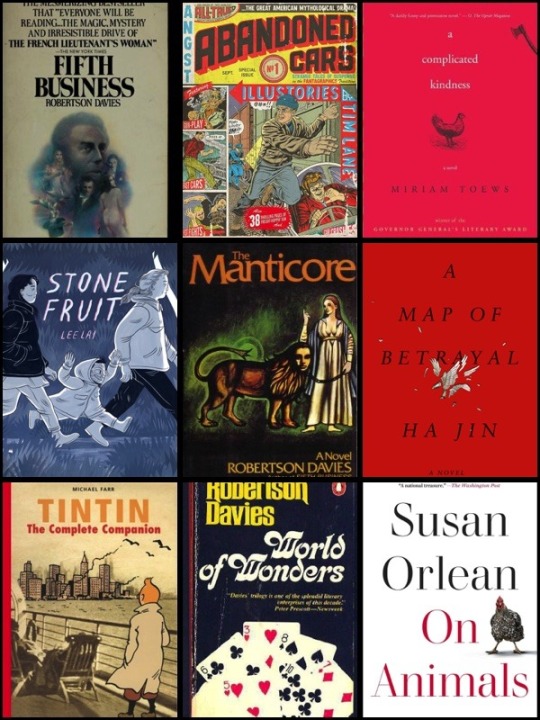
Fifth Business, Robertson Davies (Jan. 2-5)
The first volume of the “Deptford Trilogy.” Dunstan Ramsay, a retiring history professor, reviews his own life. The title comes from the narrator’s sense of himself as a supporting actor (neither “Hero, nor Heroine, Confidant nor Villain”) in the more riveting lives of others. Maybe you can already understand my interest in this character. The novel is sophisticated and perceptive about human behavior, and at the end, it reveals itself to have been beautifully plotted too. A thoughtless act by a nasty kid in Ramsay’s neighborhood turns out to have reverberated through generations, and it leads to a dramatic and frightening ending. Frightening because the events are so convincingly presented that you can well imagine an unwelcome conclusion like that rearing up in your own life.
Abandoned Cars, Tim Lane (Jan. 6-10)
Pulpy short stories drawn in a highly detailed, old-fashioned style. The drawings carry it. The writing isn’t bad, but it’s a lot of those, “lonely men, open roads, cigarettes, greasy spoons, crooners on the jukebox” kind of stories. A midcentury nostalgia that was picked clean a long time ago.
A Complicated Kindness, Miriam Toews (Jan. 9-16)
A teenaged Mennonite in Manitoba dreams of a more exciting life in New York City. I can sympathize with the heroine’s dreams, and I did like learning about Mennonite life, a world I know nothing about and the author knows intimately. But the details were ultimately so foreign to me that there was a limit to how much I could get into the novel. It’s hard to know how perceptive an observation is when you have no idea what’s being perceived. Still, people whose tastes I trust (my dad; the cartoonist Tim Kreider) admire Toews, so let’s call this my failure.
Stone Fruit, Lee Lai (Jan. 11-13)
At the start of the book, Ray and Bron are happy aunts to a six-year-old niece. But soon, their relationship ends, and they’re sunk into an unhappiness that’s not alleviated by the families they turn to. It’s all pretty bleak, but not unfairly so. The emotions the characters endure are realistic and earned, so while you might feel depressed at the end, you won’t feel manipulated. Plus, there are some great illustrations, particularly of the friendly monsters that the niece imagines while playing with her aunts.
The Manticore, Robertson Davies (Jan. 17-25)
The second part of the “Deptford Trilogy,” following David Staunton, the son of the rotten kid from the first book, as he undergoes Jungian analysis, a subject I know little about. But the little bit that I understand (or misunderstand), I like. It’s much more internal than Fifth Business, the scope is narrower, and the stakes are lower, but it’s just as intelligent and well-written.
A Map of Betrayal, Ha Jin (Jan. 26 - Feb. 1)
The main story is of Gary Shang, a double agent working for the CIA and passing information back to China while dealing with his American family and his conflicting loyalties. The framing story is of Gary’s daughter learning of her father’s past and reckoning with it. As usual, Jin’s insight into his characters’ emotional lives is terrific and effortlessly rendered. The details of this particular plot, however, are not quite so successful. Some of the set-up is unconvincing, and there are plot turns that feel sketchy. Not so much that you’ll have to put the book down, but don’t go in expecting another Waiting.
Tintin: The Complete Companion, Michael Farr (Feb. 2-21)
The second book I read to supplement 2021’s reread of the entire Tintin series. This one deals with the factual background for the stories and the artistic process by which Hergé wrote and drew each volume – as opposed to The Metamorphoses of Tintin, which I read two months earlier, and which took a more academic view. This book is beautiful to look at, featuring details of the series’ artwork and clippings from Hergé’s archives, but neither this nor Metamorphoses really deepens the pleasure of reading the actual books. Maybe what I’m looking for is a third path: a book that doesn’t take a technical or academic approach to the series, but rather an aesthetic and emotional approach. Maybe I should stop whining and write that book myself.
World of Wonders, Robertson Davies (Feb. 3-8)
The last book in the “Deptford Trilogy.” More like Fifth Business than The Manticore, this one again covers most of a lifetime – this time, of the magician Magnus Eisengrim, who is linked, from birth, to Dunstan Ramsey and David Staunton. This one ties up some of the remaining threads from the other two books, if that sort of thing is important to you, and it’s all about stage magic, something I always like reading about (in fact, this book lead me to seek out the one three spots down this list). On balance, it’s not as good as The Manticore, which itself is not as good as Fifth Business, but those are only relative markings. There’s no reason not to read all three.
On Animals, Susan Orlean (Feb. 9-15)
A collection of essays about domestic animals and wild animals. Though there are interesting stories of whales, tigers, and other majestic creatures, the essay that affected me the most was about homing pigeons, perhaps because their feats were the most beautiful to me. Because this is a collection of pieces written separately and later cobbled together, it doesn’t have the thematic strength that her single-subject books do, but it’s worth reading nonetheless.
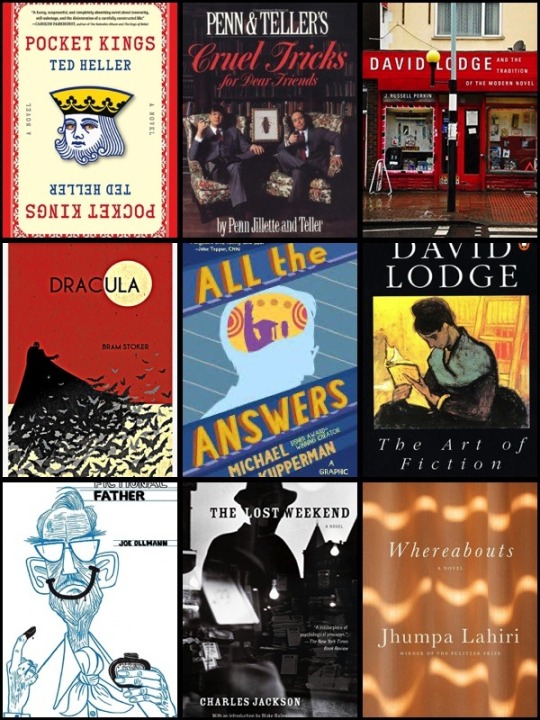
Pocket Kings, Ted Heller (Feb. 16-23)
A funny book about a stalled-out novelist who starts playing poker and becomes a relative success while the rest of his life falls apart. The plot doesn’t matter too much. You’re in it for the wittiness and intelligence of each individual paragraph. Towards the end, there’s a great section where we’re urged to reconsider the wisdom of a dozen pithy quotes by famous writers. F. Scott Fitzgerald’s “There are no second acts in American lives” is challenged by the records of “Richard Nixon, Muhammad Ali, John Travolta, Bill Clinton or…F. Scott Fitzgerald.” There’s also a good joke when the narrator accuses the novelist Zoë Heller of leveraging her last name to mislead readers into thinking she’s related to Joseph Heller – a joke that became even better when I learned that Ted Heller is actually Joseph Heller’s son.
Penn & Teller’s Cruel Tricks for Dear Friends (Feb. 24-26)
When I was in high school, I read their other two books: How to Play with Your Food and How to Play in Traffic, both of which were full of worthy anecdotes and some magic tricks I’ve deployed throughout the years to mild approval. This one was less good. There are fewer interesting passages, and much of the book serves as a trick in and of itself. For example, half of the pages are illegible, printed in what the book itself calls, “itty bitty tiny irritating psycho-print,” so that it can be used as a prop in one of the tricks the legible pages teach you. Clever, but how can you not feel conned yourself when half of the pages are unreadable?
David Lodge and the Tradition of the Modern Novel, J. Russell Perkin (Mar. 3-7)
Another academic analysis of a favorite author, another unsatisfying read. Why do I keep picking these up? There’s nothing wrong with what Perkin says about David Lodge, and as members of the same relatively small fandom, I feel a kinship with him. But there’s no response possible to somebody else’s analysis besides (a) agreeing or (b) presenting a competing analysis. I hope he got an A for this thesis, but as a book, it does nothing for me.
Dracula, Bram Stoker (Mar. 7-17)
Foolishly, I wrote my own vampire stories before ever reading Dracula. I suppose I thought that, since the story has been absorbed into our collective consciousness, there was no need to read it. Maybe you feel that way. That is not so. It’s a very good book, even if it doesn’t surprise us the way it would have its first readers. It’s perfectly paced and vividly rendered, and, although the subject is masked by the nineteenth-century propriety of its language, I think you’ll be excited by how sexually charged the novel is. An early scene of the brides of Dracula descending on a victim will have you sweating.
All The Answers, Michael Kupperman (Mar. 11-14)
Michael Kupperman’s father was a boy genius who appeared on a panel show in the 1940s, answering tricky math questions. Being a child star was not a positive experience for him and he grew into a withdrawn adult, who never shared memories of his childhood with his son. Kupperman’s book is both a biography of his father and a memoir of his attempts to connect with a distant parent. In that sense, and because it’s a comic, it invites some comparisons to Maus, but that’s a pretty tenuous comparison. I only make it because the book doesn’t offer much to hold on to. Neither half of it is bad, but it never achieves escape velocity, perhaps because the father at the center of it all remains unknown to us and to Kupperman.
The Art of Fiction, David Lodge (Mar. 19-24)
A collection of newspaper columns from the novelist. In 50 entries, he discusses one element of the novel (opening lines, point of view, symbolism, the title, unreliable narrators, etc.), and illustrates his points with excerpts from modern and classical novels. It’s all very smart and very digestible, and if you’re trying to write a novel, you’d surely find some useful tricks to borrow. My favorite piece is the one on naming characters, in which Lodge cannily compares the deliberately suggestive names "Robyn Penrose" and "Victor Wilcox" in his own novel Nice Work to the name "Quinn" in Paul Auster's City of Glass. Quinn is a name that “flies off in so many little directions at once,” and if a name can mean anything, it ultimately means nothing at all – which, as Lodge rightly points out, is the point of that existential book.
Fictional Father, Joe Ollman (Mar. 19-23)
The story of a newspaper cartoonist who became rich and famous for his sappy father-and-son comic strip while ignoring and abusing his own son. This is a made-up story, but apparently – as Ollman himself only discovered after he’d written it – it’s very congruent to the real life story of Hank Ketcham, creator of Dennis the Menace. Though Ollman sees and draws out the real emotions of in this dynamic, his book is played mostly for laughs and is mostly successful. Lots of funny dialogue and a drawing style that makes everyone look laughable.
The Lost Weekend, Charles Jackson (Mar. 26-30)
The classic novel about a dissolute alcohol’s weeklong binge. The best scene is when he makes a half-joking/half-serious attempt to steal a stranger’s purse to fund his addiction. In addition to how well it works as a sad character study, it’s also one of those books that transports you to a bygone urban landscape – if you like that sort of thing, which I do.
Whereabouts, Jhumpa Lahiri (Mar. 31 - Apr. 4)
I find Lahiri’s work both irresistible and highly resistible. I like it because it’s so good, so intelligent, so precise, and so effective. I reject it because that same expertise leaves me feeling manipulated. It provokes an emotional response, yes, but because what’s provoked is always the only emotional response made available by the text, you have the sense that you’ve been moved from A to B to C without your input. A friend of mine says writing like this is akin to a sniper’s bullet: the marksmanship is incredible, but how good are you going to feel about the results? Oh, but this book in particular? It’s fine. A woman without a name wanders through a European city without a name, thinking. A little more diffuse and experimental than her other books, but in the end it feels…well, you know.

Amateurs, Dylan Hicks (Apr. 7-11)
I hardly remember this one. It was about a group of twentysomethings, tied together by threads of romance, thwarted romance, friendship, and competitiveness. Was there a wedding? A road trip to get to that wedding? I’m not sure. My recollection is that the book was good, not bad, but I have no evidence to back that up.
Don’t Come in Here, Patrick Kyle (Apr. 10)
A little comic book. Not much of a narrative. Just a showcase of trippy artwork, which wasn’t bad. What I remember most was returning this book to the library and it not being checked back in, obligating me to call up the circulation desk before I could be slammed with a humiliating late fee.
The Long Prospect, Elizabeth Harrower (Apr. 12-16)
An Australian novel about a young girl who lives a stifling life in a boarding house owned by her unpleasant grandmother. One boarder, a scientist, takes the girl under his wing. That’s the set-up, but I can’t animate any of the characters. Like Amateurs, the action of the book has been completely forgotten. Unlike Amateurs, the feeling that remains is not positive.
To Know You’re Alive, Dakota McFadzean (Apr. 14-15)
A collection of off-kilter, slightly spooky stories. There’s a cute one about how our culture might react if a boring alien landed on Earth, a creepy one about the discovery of a lost piece of children’s media, an eggheaded appraisal of Super Mario Bros. 2, and a silent nightmare with an inescapable cereal mascot. They’re all fun.
Let Us Be Perfectly Clear, Paul Hornschemeier (Apr. 16-17)
Another collection of short comics. The design of the book is clever. There are two halves: Let Us Be, printed from the front of the book to the middle; and Perfectly Clear, printed from the back of the book to the middle. But the stories themselves are less memorable than the package.
Hanging On, Edmund G. Love (Apr. 17-24)
Pulled off a library shelf at random, I think I may be the only person to have ever checked it out. A memoir of a being a teenager and sometimes college student in Michigan during the Great Depression. Though there are few highs and many lows when you grow up in that era, the book is a breezy, amusing read, so long as you don’t get hung up with resentment after learning that his tuition to attend the University of Michigan was only about $100 per year.
Carnet de Voyage, Craig Thompson (Apr. 21-23)
A little illustrated travel diary. Thompson wrote it while he was traveling around, promoting Blankets. It’s trifling, but fine. I had a stomach flu at the start of the year, so a sequence of Thompson suffering from food poisoning made me feel seen.
King of King Court, Travis Dandro (Apr. 24-28)
A very good memoir of childhood. It’s drawn in a chunky, juvenile style, but the material is pretty harrowing. Dandro’s dad was a heroin addict, his stepfather was an alcoholic, and his mom was understandably harried and overwhelmed. Dandro’s perspective is mature and empathetic, but he’s still able to recall and illustrate the feelings of fear and anger and shame that can arise in kids when they have unwelcome encounters with the adult world. It sounds like a painful read, but it’s not at all.
Remembering the Bone House, Nancy Mairs (Apr. 27 – May 5)
A memoir about the physical spaces Mairs has occupied: both houses and her own body. Her approach is scattershot, but I liked that. There’s a tendency towards loftiness and know-it-all-ism in memoirists (fair enough, given that the alternative is to concede that the stories from your life are meaningless, in which case, how self-indulgent is it to publish them?), but Mairs avoids it. She presents her book with the attitude that writing is not the summation of life, but just another action taken by the living. Illustrating that point is a moment where she writes of publishing a personal essay about her affair and discovering that, contrary to what she thought, her husband didn’t know about it – until he read the printed story.

Nutshell, Ian McEwan (May 7-11)
Told from the perspective of a fetus, as he listens in on the sinister machinations and plotting of his mother and her lover. It’s clever and the high concept doesn’t wear thin. Embarrassingly, I didn’t realize until I had finished the book that it was retelling the story of Hamlet, even though the title comes from one of the only lines of that play I can confidently quote.
Level Up, Gene Luen Yang & Thien Pham (May 11-12)
The main character’s strict father won’t buy him a Nintendo Entertainment System. When the father dies, the hero buys an NES, and develops a passion for video games that becomes a crutch whenever he falters in life. Eventually, he’s set upon by some cherubs or angels who act as his guilty conscience, obliging him to follow his late father’s wishes for him. The main idea here – the hero’s challenge to find his individual happiness without disappointing or disrespecting his family – is handled well, but I can’t help but wish that video games hadn’t been the subject the story was spun around. I like video games, and respect their intelligence and artistic merit…but every time people try to transplant them into another medium, the operation is a failure, and the subject dies on the table.
The Unconsoled, Kazuo Ishiguro (May 12-21)
A book that tries your patience, if it’s possible to say that without being totally negative. A pianist arrives in a new city in advance of a concert and is soon dragged all over the city for endless, perplexing meetings and chores. The story is presented like a dream, where characters pop up randomly, and locations can be endlessly distant in one moment and right around the corner in the next. The thing is, dreams are always more interesting to the dreamer than to any audience, so the book can be frustrating at times, even if you accept its structure. Still, it’s impressive that he pulled off such a stunt for 500 pages, and the quality of Ishiguro’s prose is bright and beautiful as always.
Perchance to Dream, Charles Beaumont (May 23-29)
Twilight Zone-esque tales from a writer for The Twilight Zone. Actually, many of the stories in this book became scripts for that show. But they work in either medium. The best is “The Howling Man,” about a traveler in Europe who comes across a group of monks who are keeping a strange prisoner. Inventive and tidy and not bogged down by any need for meaning, these are the sort of stories I’ve been trying to write recently.
Passport, Sophia Glock (May 28-30)
As a teenager, Glock discovered that her secretive parents were actually spies working for the CIA. I think that’s the set-up for Spy Kids, but this book goes in a less bombastic direction. It’s a fairly conventional coming-of-age story, as Sophia makes friends and enemies, goes out to parties, and learns to accept herself. It’s okay, and there’s something amusingly anticlimactic about the irrelevance of her parents’ profession to Glock’s own story, but you won’t be mesmerized by this book.
The Resisters, Gish Jen (May 30 - June 2)
A baseball prodigy tries to find happiness in a dystopian future. I sped through this book, surprised at how tolerable it was, but by the end, my general disinterest in dystopian stories won out. The nod-your-head-sadly parallels to our current culture are more wearying than enlightening. The baseball scenes are okay, though. That sport translates well to the page.
Come Along With Me, Shirley Jackson (June 4-9)
The title comes from an unfinished novella included in this collection, but it and every other story are overshadowed by “The Lottery,” which is as good as its reputation holds. The next best inclusion is Jackson’s essay about the reception “The Lottery” got. In addition to the reams of letters from people incapable of understanding that her story was fictional and convinced that there really did exist a small town that committed ritual stoning, she received a fawning letter, to which she politely responded, “I admire your work, too,” only to discover that she had responded to an accused axe murderer. On the far opposite end, this collection also has “Pajama Party,” a cute domestic comedy about a child’s first sleepover. I liked that one too.
Twists of Fate, Paco Roca (June 9-11)
I’ll compare this one to Maus too, and I’ll be on firmer ground: a comic book about a young man painstakingly drawing out the war stories of an elderly man. The man fought against the Nationalists in the Spanish Civil War, fled to Algeria, joined the Allied forces, and was party of the forces that liberated Paris from the Nazis. But he was never able to return to Spain to liberate it from Franco, a regret that gnaws at him, even at age 94. That’s a good story, and it digs into some underexposed history, but I was never fully convinced of the need for the framing device.
Memoir of a Gambler, Jack Richardson (June 12-19)
A little bit like a non-fiction version of Pocket Kings. After his divorce, Richardson crosses the country, and eventually the globe, playing poker in high and low places. There’s not a lot of happiness in this world, and Richardson does nothing to change that, but his cold and precise rendering of his adventures (and really, they are adventures: he’s not just sitting at the tables for the whole book) are entrancing. His description of the geography of Las Vegas – which, by chance, I was reading as I flew into Las Vegas – should on its own be enough to shut down the city.
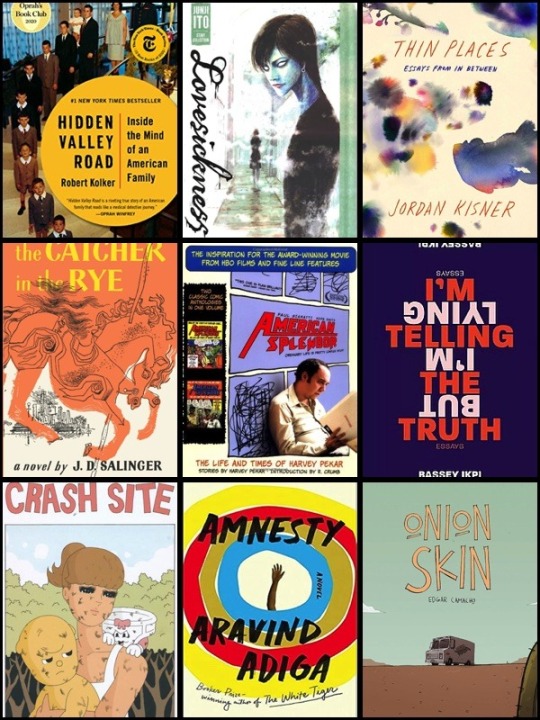
Hidden Valley Road, Robert Kolker (June 21-25)
The true story of a large family in Colorado Springs, some of whom were acquainted with my uncles. There are 12 children, and half of them are ultimately diagnosed with schizophrenia, leading to much grief but ultimately making the family a fruitful source of data for medical researchers. It’s a sad book, and like all good documentaries, it makes you feel guilty for being witness to what you’re seeing.
Lovesickness, Junji Ito (June 24-26)
A collection of unsettling, grotesque comics. Exactly what I was expecting and hoping for when I picked it up, yet I was unmoved by the collection. The territory is just the same as in Uzumaki, which I’d read the year before, but as a set of independent (rather than linked) stories, the material doesn’t have a chance to develop an insidious feeling or any thematic resonance. It’s more a series of satisfactory but forgettable shocks.
Thin Places, Jordan Kisner (June 27 – July 3)
These are the sort of essays all NYU freshman are taught to write: pick three or four subjects – usually a selection from personal experience, history, a piece of art, and an event, place, or occurrence in our culture – and juxtapose them in every pairing until you reach your page count. It’s a very mechanical process, and my experience being taught it left me prone to resist this form. And yet I liked this collection well enough. Kisner is honest, most of her insights are well-articulated, and though there’s no humor in these essays (the form won’t allow it), she doesn’t fill that vacuum with pretension, as my classmates and I always did.
The Catcher in the Rye, J.D. Salinger (July 6-9)
There’s a party game called Humiliation, where you reveal that you've never actually encountered some huge culture monument, and you get points for each person at the party who has. For a long time (still, in fact), I could say I’ve never seen Titanic and scoop up a bunch of points. That was my go-to because I was too embarrassed to confess to an even bigger miss: I had never read The Catcher in the Rye. It’s a wonderful book, though. Very funny and very moving. What surprised me was how much I admired Holden Caulfield. I don’t just mean that I understood and accepted his adolescent angst. I actually think he’s a noble person. His anger may sometimes be misplaced and his sense of righteousness can be overly dogmatic, but those are habits that usually pass with age, and what will be left is the sensitivity, intelligence, and moral strength that’s plainly evident beneath his clumsy exterior.
American Splendor: The Life and Times of Harvey Pekar, Harvey Pekar, et al. (July 7-13)
Autobiographical comics by another admirable grouch. I had never read any American Splendor stories before, maybe because their multiple art styles (Pekar wrote the comics but had a variety of other artists draw them) seemed wearying to me. And truthfully, that quality still does nothing for me. But the writing is great. The stories vary in subject and length and presentation, but every one of them is closely observed and intelligent about the way people talk and act and think. The ordinariness of life (and of Cleveland) is rendered with extreme beauty. And Pekar himself is a great hero. Another noble crank who’s critical and passionate and full of fury, yet never unkind and never less than generous.
I’m Telling the Truth, but I’m Lying, Bassey Ikpi (July 10-13)
A pain-filled memoir, this one about bipolar disorder, disassociation, and the Challenger explosion. It’s mostly engaging, though there are parts in the back half where useful details seem to be missing and it becomes hard to follow. Given the subject matter, this may not be unintentional.
Crash Site, Nathan Cowdry (July 14-15)
Edgelord stuff run through several layers of irony. Lots of violence and provocative dialogue stacked up in such a way that it’s impossible to tell whom the author is trying to provoke: those who would take offensive or those who would deny the validity of being offended. I sort of see the point, and I didn’t hate the book. But at a certain point, you wish Cowdry would stop fooling around and just write a real story.
Amnesty, Aravind Adiga (July 16-19)
A young migrant worker in Sydney comes across a murder. If he reports it, he risks deportation, a fact that the murderer is all too happy to rub his nose in. It’s a good blend of a thriller and a social commentary. I also liked that fact that it was taking Australia and its cultural values to task. Not that I personally have anything against Australia, but it’s a country that you rarely see condemned, so I appreciated getting to reading a rare (and surely well-deserved) scolding.
Onion Skin, Edgar Camacho (July 17-18)
The story of a couple that runs a food truck and finds themselves in a turf war. It holds your attention while you’re reading it, but it’s a mess, jumping around in time and in tone. Plus, the relationship at its center is very tired: a mopey guy finds his life reinvigorated by a free-spirited girl. The food looked good, though.
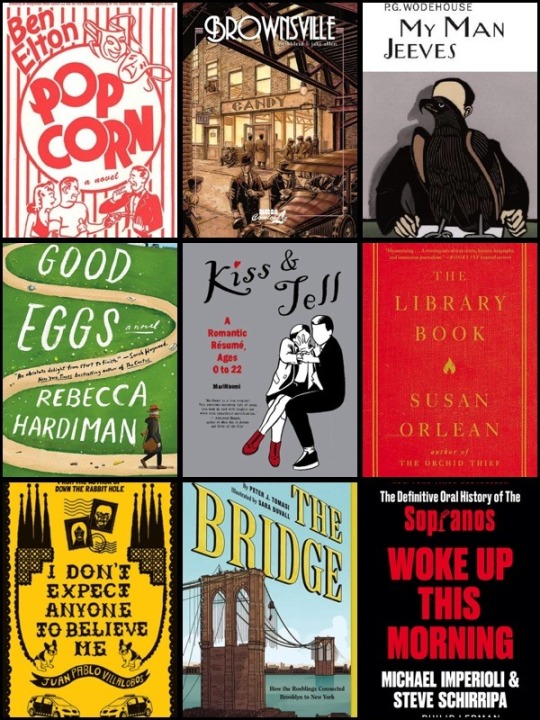
Popcorn, Ben Elton (July 21-24)
A Hollywood satire written by a Brit, so it has that some of the stiffness and artificiality that can come in when writers try to cross the pond. But on the whole, it’s funny and astute about the industry. The ending overemphasizes its lessons, but I liked that Elton didn’t shy away from the mayhem he’d been teasing.
Brownsville, Neil Kleid & Jake Allen (July 22-23)
The familiar story of growing up in New York, being attracted to the mafia, and eventually joining it. The twist this time is that it’s the Jewish mafia. Interesting? Not really. That detail hardly changes anything, so the arc and most of the individual scenes in this book are rote in conception and in execution. Your favorite mafia story, whatever it is, will give you as much as this book and more.
My Man Jeeves, P.G. Wodehouse (July 29 - Aug. 1)
An early and unpolished collections of short stories. Given that Wodehouse later rewrote most of these pieces, the decent thing to do might have been to let this collection go out of print. Fewer laughs than Wodehouse usually provides, though there are still a couple of big ones, such as one character’s passing idea to make money by selling anarchists and other dispossessed people the opportunity to beat up his rich uncle.
Good Eggs, Rebecca Hardiman (Aug. 6-10)
A warm-hearted comedy about an Irish family. There’s the grandma who keeps making trouble, the rebellious teen with a soft, sentimental center, and the harried father caught in between the generations, trying to keep everything running smoothly. Eventually, they’re all put on the same side of the field when they have to take on an American who’s scammed them. It’s nothing remarkable, and I didn’t laugh too much – perhaps not at all – but sometimes it’s enough if a book features one element close to your heart. In my case, it was the suburban Dublin setting.
Kiss & Tell: A Romantic Resume, Ages 0 to 22, MariNaomi (Aug. 9-11)
A catalog of intimate relationships ranging from crushes to long-term relationships. To some degree, it’s all contextualized by its setting (the Bay Area in the 1980s and 90s), and by how the author views her relationships in comparison to that of her parents. But mostly, it’s just a list, and one that becomes quickly repetitive.
The Library Book, Susan Orlean (Aug. 11-14)
Possibly a perfect non-fiction book. In 1986, a fire broke out at the main branch of the Los Angeles Public Library, wiping out 20% of its collection. Orlean covers that disaster and it subsequent investigation, but she also makes room for the history of the LAPL, discourse on the function of libraries in America, personal reflections, academic theorizing, and science experiments (the chapter about her own attempt to burn a book is one of the best parts). The arson at the heart of this story is compelling enough to make this book good in anyone’s hands, but in Orlean's, it’s great.
I Don’t Expect Anyone to Believe Me, Juan Pablo Villalobos (Aug. 16-21)
Another fun mash-up. This time the blend is crime thriller, campus novel, and metafiction. Juan Pablo is a Mexican student who is abducted before leaving to study abroad in Spain, and ordered to get close to a corrupt politician by falling in love with his daughter. The plot is knowingly ridiculous and, though you eventually give up on trying to follow it, it’s amusing all the way through. There’s also a fun essay at the end, in which the translator explains his difficulty in capturing the voices of the different narrators, conceding with admirable frankness that he’s not sure he succeeded.
The Bridge, Peter J. Tomasi and Sara DuVall (Aug. 17-20)
The true story of the construction of the Brooklyn Bridge. If you don’t know it already, the fun detail is that the chief engineer became overworked in the middle of construction, and spent the rest of it monitoring the bridge’s construction from his bed while his wife took over as de facto leader at the job site. The standard details of how to build an enormous bridge are also fun to learn about, and the authors do a good job making you share in the stress of the workers deep below the water.
Woke Up This Morning, Michael Imperioli, Steve Schirripa, and Philip Lerman (Aug. 23-28)
An oral history of The Sopranos cobbled together from the podcast Imperioli and Schirripa started a few years ago. That show is endlessly discussable, and the book has a few funny stories and some thoughtful analysis, and it’s certainly better to read this book than to listen to the podcast (did I tell you I’ve declared a war on podcasts?), but I don't know…I found myself growing less and less interested the more I read. Once the initial fun of being a fly on the wall passed, I recalled that The Sopranos is strong enough to speak for itself.
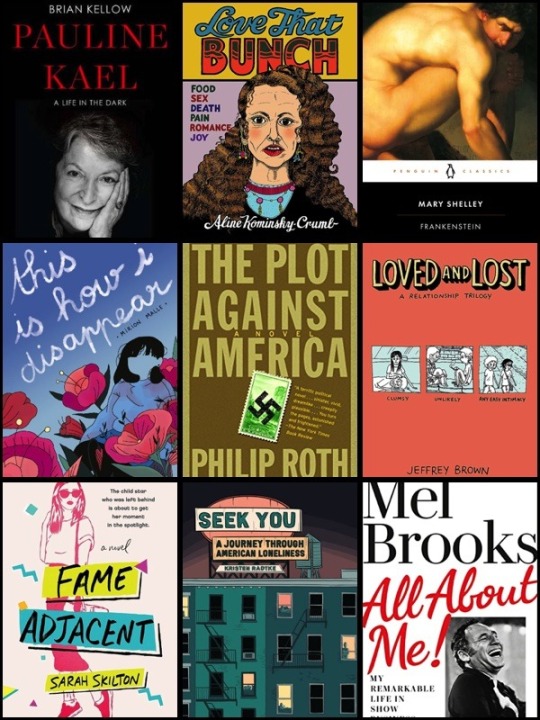
Pauline Kael: A Life in the Dark, Brian Kellow (Aug. 30 - Sep. 4)
A thorough biography that features and contextualizes lots of excellent film reviews by Kael. It also reveals some of her astonishing lapses of ethics. In 1971, she published, “Raising Kane,” an essay about the authorship of Citizen Kane’s screenplay. It’s a terrific piece of writing, but it’s extremely shoddy journalism that has since been disproven. Even worse, much of her research was stolen from a UCLA professor, whom she never credited. It’s a shocking revelation and Kellow presents it without excuses. That chapter alone is worth the price of admission.
Love That Bunch, Aline Kominsky-Crumb (Sep. 2-5)
Autobiographical comics from one half of an underground comix power couple. A relationship that’s mostly been presented through her husband Robert Crumb’s eyes is shown here from Kominsky-Crumb’s perspective instead. But the thing is, they’re a very well-matched couple, so their perspectives aren’t all that different. And honestly, neither of their styles are terribly interesting to me, accomplished though they are. Still, you can admire Kominsky-Crumb’s pioneering efforts, and she and her husband and their unconventional family are pretty cute, no matter how repellant this book tries to make them seem.
Frankenstein, Mary Shelley (Sep. 6-10)
Another classic that I’m only just now getting around to. A hair less interesting than Dracula – the old-fashioned formality of the writing makes it a less ripping read – but still great. Dr. Frankenstein and his monster are both fascinating and complex, and the whole story is genuinely haunting and ambitious in scope. The framing device of the Arctic voyagers who witness the end of Frankenstein’s story seems impossibly contemporary. Considering how young Shelley was when she wrote something so good, hers may be the greatest accomplishment in the history of literature.
This is How I Disappear, Mirion Malle (Sep. 10-12)
Another mental health story. Because this one is done as a comic, not as prose, it can place us immediately into the shoes of its protagonist and let us feel her pain, which is a point in its favor. Working against it is the abundance of scenes, dialogue, and plot points driven by text messages and social media messaging. As always happens when those elements are spotlighted in a story, they dial the energy of the book down to nearly zero. (I'm not letting myself off the hook: I've tanked my own pieces that way.) That technology is an important part of our lives and our culture, and someday somebody will find a way to mill it into art, but it hasn’t happened yet.
The Plot Against America, Philip Roth (Sep. 11-17)
It had been nearly 15 years since I read anything by Roth. This was a good one to restart with. An alternate history of Roth’s childhood if the United States had elected Charles Lindbergh over FDR in 1940. The family drama and the political drama are equally engaging, and Roth even leans into the ridiculous fun of speculative fiction with a big, ludicrous twist in the last fifth of the book that guides everything to a satisfying resolution.
Loved and Lost, Jeffrey Brown (Sep. 14-18)
Three graphic novels covering three of Brown’s formative romances. Sincere, but sort of wimpy. I don’t want to cross a line and start critiquing anybody’s personal emotional repertoire – I’m just talking about what’s recorded on the page. The happy moments we see of his relationships are moments of quiet companionship. There’s almost nothing about adventures or inside jokes or mutual discoveries – the exuberant parts of a relationship. Quiet companionship is an important part of love too, and if that’s the pitch at which Brown lives his life, there’s nothing wrong with that, and he should record it accurately. But the pleasure of reading about it is faint.
Fame Adjacent, Sarah Skilton (Sep. 20-24)
A fun and original novel. The narrator is a former child actor, the only one from her troupe of singers and dancers not to become famous. The first part of the book has her in rehab for her internet addiction. The second part has her road-tripping to New York for a reunion with her castmates. It’s a lively book (a quality in short supply in too many novels), and I want to commend Skilton for pulling off a trick that’s harder than you might think: the fake TV show that she creates is credible. Often the fictional media contained within books (and TV shows and movies, for that matter) seems either implausible – we don’t believe a TV show so described would ever air – or like a poorly disguised version of an existing piece of media – distracting us as we look for the Easter eggs in this universe’s version of Seinfeld. But Skilton’s invention (Diego and the Lion’s Den) is totally believable, and its details are nicely fleshed out.
Seek You, Kristen Radtke (Sep. 21-25)
Another bit of brainy graphic essaying by Radtke. The subject is loneliness – Radke’s and America’s. Surrounding the personal reflections, there is a lot of well-synthesized research and bright analysis. And how about this for a good definition to carry with you: “Loneliness isn’t necessarily tied to whether you have a partner or a best friend or an aspirationally active social life. It’s a variance that rests in the space between the relationships you have and the relationships you want.” My only complaint is about a section where, talking of television sitcoms, she blurs the important distinction between canned laugh tracks and the laughter of live studio audiences – but that’s only a personal hang-up of mine.
All About Me!, Mel Brooks (Sep. 25 - Oct. 1)
A very happy memoir by a very happy guy. Lots of warm stories stretching from his childhood to his dotage, and some triumphant moments where he outwits boneheaded Hollywood executives. He’s justly proud of his own talents and achievements, but he spends more of the book heaping genuine, specific praise on other actors and writers he’s worked with. Tellingly, the only colleague who’s recollected with even the slightest negativity is Jerry Lewis…
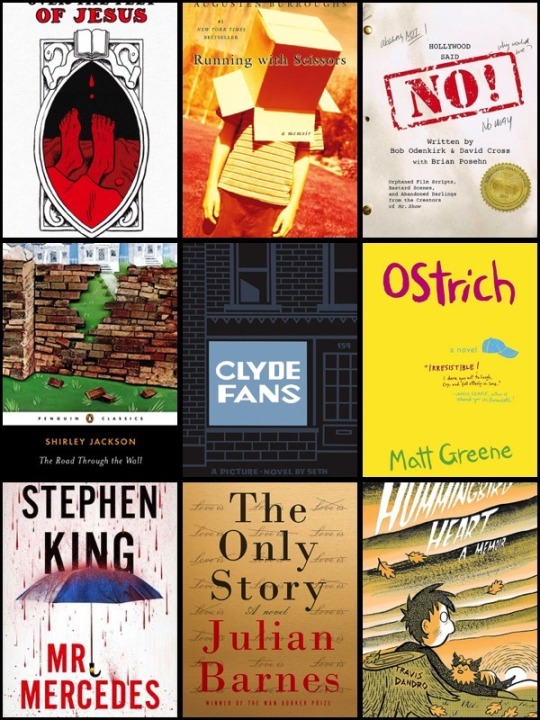
Mary Wept Over the Feet of Jesus, Chester Brown (Oct. 1-3)
An illustrated collection of stories from the Bible that Brown believes evince a pro-sex work attitude in early Christianity. As somebody with almost no preexisting feelings about the Gospels, I’m an easy mark for any interpretation. Brown, who has spent the last 25 years visiting prostitutes, is not exactly a detached analyst here, but whatever his motivations for writing this book, his evaluation of the Bible’s text is convincing enough. The trouble for me was that, irrespective of their political meaning, I found the Gospel stories themselves distasteful and unkind.
Running with Scissors, Augusten Burroughs (Oct. 2-4)
The blurbs all compare him to David Sedaris, but that’s inapt. There’s nothing funny about Burroughs’ story, and the comparison seems to me like laziness, an inability to distinguish two very different types of memoir. With that pedantry out of the way: this is a good book. As a teenager, Burroughs is put in the care of his mother’s psychiatrist, a dangerous blowhard who keeps a filthy and miserable home. Burroughs witnesses and endures a lot of horrors over the course of five years, and though he’s never self-pitying nor seeking of praise, I did feel admiration for his escape and his ability to transmogrify his life into art.
Hollywood Said No!, Bob Odenkirk & David Cross with Brian Posehn (Oct. 6-8)
Two never-produced screenplays and other sundry material by some of the brains behind Mr. Show. Not their best work, but I smiled a lot while reading it. I did object, however, to their attacks on Jamie Kennedy, towards whom I feel an odd and misapplied sense of protectiveness.
The Road Through the Wall, Shirley Jackson (Oct. 8-14)
Jackson’s first novel, in which she exposes the ugliness, prejudice and misery beneath the surface of a privileged upper-class neighborhood. That’s pretty shopworn material these days, but remember: she did it in 1948. The novel is decent – I liked the scene where two teenagers seek a transgressive thrill but the best they find is a secret tea party with a butler – and the gruesome ending does still shock. But it’s weighed down by having too many indistinguishable characters.
Clyde Fans, Seth (Oct. 14-17)
A meticulously drawn book about a generational struggle to keep open a family business. The artwork is impressive, but I just can’t summon up any enthusiasm for this story and its themes: the agony of being a salesman, the inability of men of a certain generation to share their feelings, and more of that midcentury nostalgia I complained about earlier.
Ostrich, Matt Greene (Oct. 15-17)
A 12-year-old boy with brain tumor narrates an otherwise typical story of growing up (parents, friends, school, burgeoning sexual feelings). There are some clever and funny lines, but I grew less and less convinced I was hearing the honest voice of a child as opposed to the practiced remarks of a novelist.
Mr. Mercedes, Stephen King (Oct. 20-29)
A retired detective is taunted by a murderous psychopath and begins a private investigation to catch the killer. My hopes for this one weren’t quite met. The plotting is fine, and some tension builds well in the last act, but none of the characters feel like more than placeholders, and the gruesome details (particularly in the killer’s backstory) are nowhere near King’s best. Also, King’s efforts to write dialogue for a Black teenager result in some embarrassing lines that I won’t quote here.
The Only Story, Julian Barnes (Nov. 4-9)
I picked it up because it was about tennis, and discovered that Barnes was an author I should have been reading for years. A man recounts his “only story,” of being a college student home for the summer and falling in love with a middle-aged woman he’s partnered with for a game of doubles. The direction the story takes doesn’t matter. What I liked about the book was how intelligently and unpretentiously Barnes writes, and how deeply he digs into important questions. The book opens with, “Would you rather love the more, and suffer the more; or love the less, and suffer the less? That is, I think, finally, the only real question.” And before you have a chance to reflect on how well put that is, Barnes challenges himself: “You may point out—correctly—that it isn’t a real question. Because we don’t have the choice…if you can control it, then it isn’t love.” The array of thoughts those four sentences evoke would be accomplishment enough for most novelists, but it’s only the first of many treats Barnes offers.
Hummingbird Heart, Travis Dandro (Nov. 5-7)
The sequel to King of King Court, picking up on Dandro’s life as he hacks his way through his teen years. All of the praise-worthy qualities of the first book are present…but less so. The intelligence of the writing and the appeal of the drawing style are still there, but the subject is less interesting, more well-worn: shoplifting teenage boys learning to put aside their anger and face the fact that they must grow up. It’s done well, but only well, and Dandro's previous book set the bar higher.
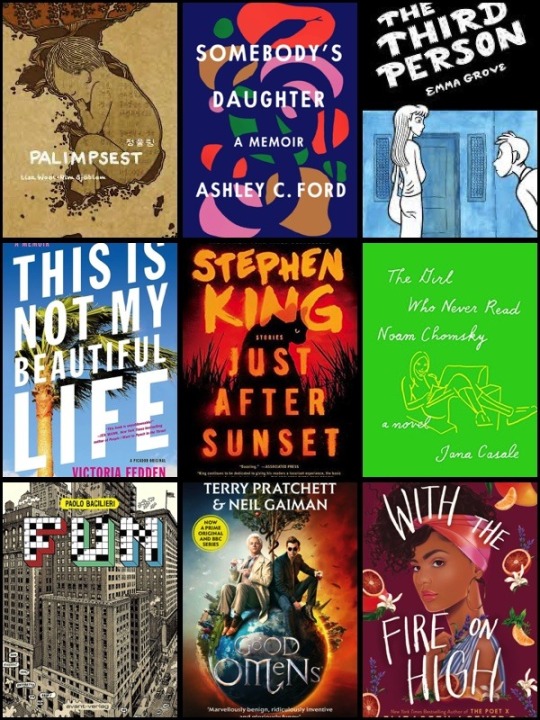
Palimpsest, Lisa Wool-Rim Sjöblom (Nov. 9-12)
A very angry memoir of an adoptee seeking out her roots. The author directs anger at her adopted country, at her country of birth, at bureaucrats from all over, and at herself. All of which is well-earned, and the point that Sjöblom makes early on is that she wishes to counteract the rosy prevailing narrative of the experience of international adoptees. I would push back slightly by noting that Sjöblom sometimes seems to not just want to dismantle that narrative, but to replace it with one that’s equally overbroad – her own – not realizing that that would be just as limiting. But that minor quibble aside, this is worth reading.
Somebody’s Daughter, Ashley C. Ford (Nov. 12-16)
There’s a lot of trauma recounted in this memoir of growing up with an abusive mother and an incarcerated father, and Ford renders it all calmly and dispassionately, yet still with a keen memory of the pain she felt. If you can handle that sort of material, this book offers it about as well as it could be done. And Ford shares a few memories that stick with you long after the book is done, like a scene of her grandmother setting ablaze a nest of snakes.
The Third Person, Emma Grove (Nov. 16-20)
This one sneaks up on you, and soon, you’ll be flying through its 900 pages. Grove is a transgender woman visiting a therapist to be approved for hormone therapy. As the sessions progress and Toby the therapist learns more about Grove and her past, he begins to think that she may have Dissociative Identity Disorder, which he feels must be addressed prior to any other medical care. The drawing style is simple and flat, and much of the book is given over to repetitive scenes of therapy sessions, which may sound boring, but it’s actually very easy to become absorbed in their discussions. And the therapist isn’t just a prop to give Grove somebody to talk to; he’s a real character whom we see as clumsier and more unprofessional the longer the book goes on.
This Is Not My Beautiful Life, Victoria Fedden (Nov. 17-20)
While Fedden was pregnant and staying with her family in Florida, her parents’ house was raided by the feds. This memoir touches on her dysfunctional family, their legal travails, and the goofy (and, to my eyes, could-not-be-less-desirable) experience of living in Florida. The details of her family’s unique experiences give the book some early momentum, but the humor doesn’t progress beyond zaniness, and eventually, the book spins off in fragmentary, underexplored directions in an unsuccessful search for a point.
Just After Sunset, Stephen King (Nov. 24-30)
I broke my informal rule and read more than one Stephen King book in 2022. This one is a collection of stories, and it’s more successful than Mr. Mercedes. There are 13 stories, and at least nine of them work. Particularly good are “Stationary Bike,” one of those tales about a living painting; “The Gingerbread Girl,” about an obsessive runner; and N., an old-fashioned novella about a psychiatrist who takes on his patient’s obsession.
The Girl Who Never Read Noam Chomsky, Jana Casale (Dec. 1-8)
A highly internal novel about a Millennial in Boston who aspires to be a writer. No, don’t run away: this one is actually good. Leda, the protagonist, is seen in a number of quiet, precise vignettes, moving through college and her early 20s, trying to be a friend and a lover and a daughter and a romantic partner. I thought I’d had my fill of these stories (both from other books and from my own droning life), but I found room to let this one in. My interest waned in the last third, once the character grows up and we accelerate through her adulthood and old age, but up until then, it’s absorbing.
Fun, Paolo Bacilieri (Dec. 2-5)
A graphic novel about the history of the crossword puzzle, woven around a knowingly melodramatic mystery, all told in a vaguely meta style. It’s pretty busy, and though it delivers on the fun promised in the title while you’re reading it, it doesn’t stick with you.
Good Omens, Terry Pratchett and Neil Gaiman (Dec. 10-15)
A book my mom was recommending to everyone 25 years ago. An askew story of the Antichrist being swapped at birth and of the junky Armageddon that follows. It’s cute and funny, and though I get a little impatient with British whimsy these days, it's well-deployed here. The cast is so sprawling that it becomes a little unwieldy – this is probably an asset in its miniseries adaptation – but there aren’t any characters whose sections you dread.
With the Fire on High, Elizabeth Acevedo (Dec. 23-29)
The first young adult novel I had read in many years, about a high school senior with a talent for cooking who must learn to trust in and prioritize her own dreams. It had been a while since I read a book with a lesson, and shifting gears took some time. But once I did, I was happy to go along and cheer the main character’s triumph. I read most of this book on a six-hour train ride through California’s Central Valley, seated next to a man without a neutral odor, so its many descriptions of aromatic food were very welcome.
***
It was not my favorite year of reading, but curiously, I read more books in 2022 than in any other year since I’ve been keeping track. Maybe it was overextension that led to a less positive experience. Maybe my mood was brought down by two or three too many painful memoirs. Or maybe I should just internalize the lessons of Ted Heller and Jack Richardson, and accept that sometimes life deals you a bum hand. That can be true of a year or of a reading list.
But I did discover those two authors. And finally mark off Dracula, The Catcher in the Rye, and Frankenstein. And one Susan Orlean makes up for a hundred Brownsvilles. In order to maintain my enthusiasm for writing in the face of the constant beatings 2022 offered, I had to accept the old lesson about taking pleasure in the creative act itself and not being preoccupied about where the final product would lead me. That equanimous outlook is just as useful pointed towards the writing of others, remembering that, whatever the yearly average turns out to be, the pleasure of reading any one good book is never diminished.
#reading list#robertson davies#tim lane#miriam toews#lee lai#ha jin#susan orlean#penn and teller#bram stoker#david lodge#michael kupperman#joe ollman#charles jackson#jhumpa lahiri#dylan hicks#elizabeth harrower#dakota macfadzean#paul hornschemeier#edmund g love#craig thompson#travis dandro#nancy mairs#ian mcewan#gene luen yang#thien pham#kazuo ishiguro#charles beaumont#sophia glock#gish jen#jd salinger
3 notes
·
View notes